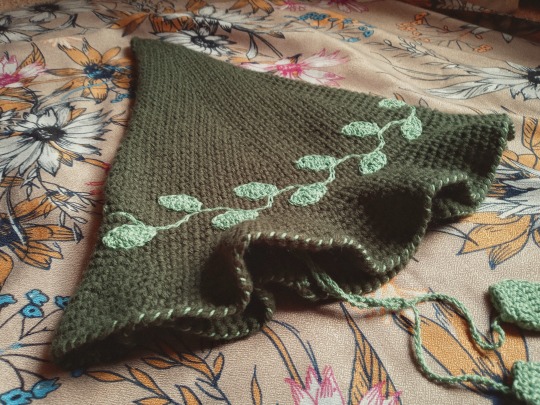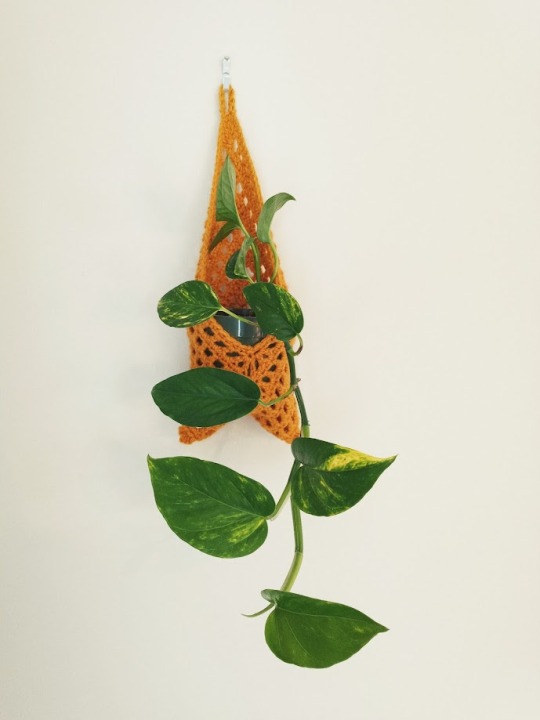#how to trade gold online
Explore tagged Tumblr posts
Text
#spot metal trading#capitalxtend#trade gold online#trade spot metals#gold silver trading#how to trade gold online
0 notes
Text
Dollface - the Toymaker x Real Toymaker!Reader

As a toymaker, you are delighted when you stumble across MR EMPORIUM'S TOYSHOP. But when you meet its eccentric owner - one eponymous 'Toymaker' - you enter into an impossible game with higher stakes than you ever imagined…with the risk of your deepest fantasy coming true. Rating: Mature. Tags: Dollification; Toyification; Truth or Dare; Reality-Bending; Humiliation; Psychological Torture; Fluff; Teasing; Touching; Forced Dancing; Mentions of Neglect; Cosmic Horror; Horrible Fake German. Reader is presumed female, but has a complicated relationship with gender and enjoys feminine terms of endearment. requested by the lovely @chronicbeans!! whilst this was originally meant to be a few-paragraphs long headcanons bit...but then it sprawled into a 13,000 word fanfic. my apologies to yourself, and to any German speakers in the audience 🙈💖 you can also read this on AO3. i hope you enjoy!
Toys are your life.
For as long as you can remember you have been fascinated by all manner of toys: everything from teddy bears to zoetropes; spinning tops to yo-yos. As a child you weren’t just interested in playing with toys—you wanted to reach inside of them, pick them apart, and understand every little detail about how they worked. Much to the chagrin of your parents, you spent more time trying to put your toys back together than you did actually playing with them.
But all of your alternative playtime paid off. Now, as an adult, you run a modest yet successful local toymaking business, with your own vendor stall at the market and a popular online shop. Much of your work is custom, using vintage materials to replicate toys of the past, and you occasionally trade and sell real old toys too. As a result, you have something of a monopoly on the local toy scene, and feel you know every single toymaker and toy-collecting enthusiast in a fifty mile radius.
That’s why it’s a real shock when you stumble across MR EMPORIUM’S TOYSHOP late one night.
The storefront is a gorgeous assault to the senses. Parked in the middle of the cold, grey street, the toyshop beams out crimson and gold onto the snow drifts, with all manner of classic toys peeking out at you through the windows. You are delighted to see an assortment of downy plush bears and hand-painted model motor cars crowding the shelves: so many it feels like the toyshop itself might burst at the seams. Your giddiness only increases as you get closer to the window. You can make out all sorts of fun, bright shapes within: countless colourful toys beckoning you and begging to be taken home.
Yet it isn’t these treasures which catch your eye the most. Right at the back of the shop, near the counter, you spy a shelf lined with dolls. They are beautiful even at a distance: likely from the early 20th century, masterfully painted and wearing a fine rainbow of little dresses. Even from your vantage point you can see the impeccable craftsmanship. There’s immense detail in their delicate hands, and if you’re not mistaken, each doll has a crop of real human hair.
Perhaps most intriguing of all is the eyes. Their glass sheen looks so sad and wistful…far more emotion than a doll should be able to communicate.
If you didn’t know any better, you would believe the dolls were alive.
Oh, I shouldn’t , you tell yourself. I’m much too old now to be playing with dolls…and I keep all my old ones locked up anyway. I shouldn’t deprive some kid of a toy. This is a deeply silly excuse, and a hypocritical one. The vast majority of your clientele are adults, as are the brilliant toymakers you’re proud to call your friends. This is the perpetual double-standard you constantly believe and are always trying to rally against: that you are uniquely strange, and deserve to be ridiculed for your interests.
The curious thing is that this idea doesn’t apply to toys more broadly…only to dolls. You have made countless dolls throughout your career, and yet owning dolls and enjoying them is something you’ve long nursed a hang-up over. But that is a can of worms you refuse to open up today. No , you decide, today I am going to be a normal adult who is confident about their interests and doesn’t feel an ounce of shame! I am going to go into this toyshop and look at those dolls, and that’s that! With your mind made up, you shift your backpack onto your shoulder, take a deep breath, and push through the toyshop’s door.
The door slams shut behind you with the tinkle of a bell. You are immediately enveloped in warmth, and the delicious scent of varnished wood enrobes you like a fine dress. You can’t help but close your eyes and inhale: somehow, the toyshop smells just like your childhood.
“Hallo, meine kleine Mädchen! Komm in, komm in, be ge-removings yourselves from dee kalt! It is ein horrid evenings, is it not?”
You open your eyes in surprise, and see an older, greyish-blond-haired man leaning against the counter. He’s dressed in a most whimsical fashion, wearing a soft white work shirt coupled with a maroon waistcoat, and a brown apron stuffed with woodworking tools. A spotted ascot around his neck and a pair of pince-nez balanced at the end of his nose complete the look.
The man smiles at you like he’s known you all his life. You feel like you’ve been transported to another time.
“It is,” you agree, as you shake the snow drifts from your boots. “So sorry for dropping in so late—I’m surprised you’re still open.”
“Ah, but I am always having times for dee beautiful Fräulein,” says the man with a coy wink. “But vot is it zat is ge-bringings you here?”
You have to stifle a giggle. You know enough of the language to know the man’s German is terribly off, and his accent is borderline offensive. However, you also know that folks in the toymaking community tend to be eccentric, and you can forgive a corny, theatrical accent for the wonderful atmosphere of this shop. Who are you to judge if he wants to LARP as a Bavarian thespian?
Before you can reply, the strange man is suddenly beside you…although you don’t recall seeing him move. He has also removed his pince-nez. You blink, a little taken aback. How did he move so quickly? You wonder if you’ve eaten enough that day.
“I’m…a toymaker,” you say, trying not to sound freaked out. “I’ve never seen your shop before, and I thought I knew everyone in town who makes toys. What’s your name?”
The man’s eyes are blue, you notice—terribly blue, and sparkling in the soft light with unspoken mischief. “You are beings ein toymaker? Vy, zat is a coincidence…” He taps the side of his nose. “Many peoples ge-calls me by many names. But zey most oftens call me the Toymaker, und nothing else. It be gettings dee point across, nein? Und was ist your name?”
You tell him, and the Toymaker’s mouth splits open in a wide grin.
“Das ist ein schöner name!” he says enthusiastically. “Truly, a magnifizent fit. It is not often zat I am gettings other toymakers in mein shop…I vonder, vot does your eye ge-fallen upon? Could it be mein cuddly collection of teddies? Oh, ja, I sees you are ge-needings ein soft companion for dese frosty nights. Or could it be mein train? Choo-choo! it goes, round and round all dee livelong day! I am ge-havings many customers mit ein eye for dee train.”
The Toymaker’s voice is smooth as butter, rich and inviting, and each word he speaks seems to add a little more colour to his delightful environment. You look around in awe at all of the toys, unable to comprehend the sheer scale of the place. Just moments ago the shop seemed so small, with the abundance of toys seriously crammed in on the shelves, but now it looks impossibly vast: a veritable sea of playful delights. The little choo-choo train in question chugs along on its rails and moves past the doll shelf, drawing your eye back to their pretty little figures.
“Ah, dee Katze hast gotten your tongue,” says the Toymaker. He gestures to the dolls, and the gold ring on his right pinkie finger catches the light. “I too ams often becomings stricken by dee beauty of mein dollen…zey took me many nights to make, ja. Oh, but ge-look! Eins ist out of place. Zose fingers are so fiddly! Und dee hair…zo many eveninks ge-spended brushing out zeir tiny curls."
You watch as the Toymaker reaches up and begins deftly rearranging the dolls. His fingers are long and nimble, and they move with such care and attention, placing each doll’s tiny hands neatly in their laps and smoothing down their dresses. When you’re a toymaker, you grow to appreciate a pair of well-practised hands, and there’s something undeniably… charming , about this Toymaker and his cartoonish whimsy. It’s silly, but you feel a little heat rising in your cheeks. The attention he’s paying to such small, delicate objects…
…well, it’s only natural that your mind should wander to more practical applications of such hands.
“The dolls are gorgeous,” you say. “Do you offer any toymaking classes? The dolls I make have a bit more of a modern touch.”
That’s when the Toymaker laughs, and it is a strange laugh: it tinkles out of his mouth like a jingle, in a musical, ‘Ha ha ha HA ha ha ha!’
“Oh, mein dollen are sehr modern…moreso zan you sink,” says the Toymaker. He gives you another wink, as it seems he likes to give them out for free.
That’s when you feel the little clench in your chest. Oh dear, he really is quite handsome. This wouldn’t be the first time you’d caught feelings for a quirky, attractive stranger, and they were often not as well-dressed as the Toymaker. You have a tendency to get caught up in the realms of imagination, and have thought up more than a few daring trysts with pretty-faced people with whom you’d only exchanged a couple of words. You ought to grab a doll, leave, and have a quiet little panic attack about this interaction at home.
You force your eyes away from the handsome man and back to the shelf.
That’s when you spot her.
Somehow, a doll had escaped your notice. Right in the middle of her sad-looking rainbow sisters is another doll, simply and prettily done up in a powder-blue be-ribboned frock. Unlike the other dolls, this one is smiling in a dimpled way, and her eyes sparkle with a magical sheen not unlike that of the Toymaker’s. You note with some amusement that the doll has the same eye colour as you—hair colour, too. This isn’t strange on a doll, but it gives you the same jolt of satisfaction and déjá vu you get when meeting someone who shares your name.
“Ah,” says the Toymaker (now on your other side). “Dee dollen…zey speak to you, ja? Zey are ge-having ein chitter-chatter, all high up on dee shelf. Vot fun games zey have ven I ge-leaves the shoppen!”
Dollen isn’t even the German word for dolls, you know—it’s Puppen. But you get the sense that the Toymaker’s German accent is less an earnest recreation (and it’s certainly not his natural accent), but a pantomime version intended to amuse and entertain.
“I’m sure they do,” you say, but you’re distracted from the Toymaker’s little act. The longer you look at the doll, the stranger you feel.
You move closer to the shelf to get a better look, and are startled by what you discover.
It isn’t just that the doll on the shelf has similar hair and eyes to you: they’re both the exact same shade, even down to the imperfect flecks in your irises.
You study the doll intently for a moment, blink, and— what? The doll’s hair is now the same length as yours. Was it always? No, you could have sworn just a moment ago it was not just a completely different length, but style.
You rise up on your tiptoes to get a better look at the doll, and are baffled by what you see. It’s as if detail is stacking on the doll right before your eyes, the way some video game maps load in piece-by-piece. You watch as texture is added to her hair, and light pools in her eyes. This level of craftsmanship is uncanny; it’s as if the Toymaker went out of their way to create a doll which resembles you.
“How did you do that?” You turn to the Toymaker, confused. “Did you know I was coming here?"
The Toymaker’s mouth contorts into an offended pout. “Now, you ge-vounds me. It is ein special privilege, having another Spielzeugmacher in mein shop. Tell me, vot do you sink of her hair? Es ist pretty, ja?”
“But that doll looks exactly like me,” you say.
You can feel your heart hammering in your chest. Suddenly the warm, cosy atmosphere of the toyshop feels more claustrophobic and oppressive. The Toymaker looks unbothered; he rests his chin on his hand and contemplates the shelf.
“Zere ist ein…certain resemblance,” says the Toymaker, with an unusual, almost French affectation on the last word. “But you are just ge-havings, as zey say, ‘von of zose faces’. Ja, das ist richtig: ein dollface. Puppengesicht. All smooth und sveet. Vy, vot a lucky lady you are! She simply must be goings home vith you.”
You’re scrambling to work out what kind of practical joke this is, and how the Toymaker was pulling it off. You’d met a few eccentric toymakers with God complexes before, as they tend to go hand-in-hand: you’d briefly dated one who designed escape rooms in his spare time. But this is on another level…creating a doll which can be imperceptibly altered to resemble a person in real-time? You’d never heard of such a thing, and you can’t think of a non-creepy reason why someone would go to the trouble of making one.
Oh, hang on a minute, you think. This guy might just be a genius. “This is a marketing trick, isn’t it?”
You pull away from the Toymaker and lean against his counter, feeling terribly smug for having figured it out.
The Toymaker puts his head on one side, quizzical. Playing dumb, you think.
“I am not ge-followings you,” the Toymaker says.
“You make dolls of the people you see ahead of time,” you explain. “People you know who will come in here at some point…collectors, other toymakers. Then you wait and put them on the shelf when they come in, maybe behind some hidden panel so you can spin them around when they get close. Then when they come in, it’s like they’ve found the perfect toy!”
You’re so proud of yourself for having cracked the case, you want to pump your fist in the air. For a moment, you envision yourself wearing a deerstalker hat and smoking a pipe. Go me! But your victory is short-lived. During your diatribe, the Toymaker’s bright, childish grin had frozen on his face, and remained in place even during your brief mental celebration. But now the smile slowly slips like a mask peeling away from too-tight skin. In its place sits a stormy frown: one which clenches the muscles and wrinkles of the Toymaker’s face into an expression which says ‘insulted’.
“For shame,” says the Toymaker. “That’s twice you’ve accused me of cheating now. You really do me a disservice. I am bound by the Rules of Play, and would never resort to such cheap tricks.”
What the hell…? The Toymaker’s accent is completely different. Where before his voice was a thick soup of faux German, now it is a soft British breeze: a proper, formal accent which speaks the way trees rustle. You gape at him, dumbfounded.
“Your accent is different,” you can’t help but say. You’re no longer just leaning against the counter—you’re actively pushing into it, with the edge of the countertop pushing into the small of your back.
The Toymaker raises an eyebrow at you, and smirks. “You are not half as stupids as you are ge-lookings,” he says, slipping the German back on like a heavy cloak. “But zen, I know you are playing ein game mit me, aren’t you?”
You stare at the Toymaker. Something has shifted: the air is thick with a tension you cannot identify, but which you want to run away from. You keep staring, thinking that if you look away from those too-blue eyes for even a moment, you might just lose your grip.
You know for a fact that if you look back at that doll on the shelf, it will look even more like you than before.
“I don’t know what you’re talking about,” you say, and you wish you weren’t lying.
The Toymaker laughs his musical laugh and wags his finger in your face. “Sehr naughty!” he says. “Oh, how natürlich dee lies kommen to sie, mein Schatz. You be ge-knowinks how to play games…zis ist ein lecker human mind game, und you are ge-tryings to deceive me.”
His voice slips smoothly back into the British:
“Do you think I don’t know all about your little fantasy?”
Your eyes go wide, and a choked noise escapes your mouth. No. There is no way that this man…this impossible toymaker could possibly know. You were always so careful, so sure to keep it all to yourself! Familiar shame and embarrassment wash over you in a hot wave as the Toymaker looks at you, looks into you, as if he can see the inner workings of your mind. Your mind grabs at the old, familiar justifications the way one might grab a newspaper for modesty if they found themselves naked on a bus. It’s perfectly normal to have fun little flights of fancy. Everyone plays make-believe sometimes, right? “But zey are embarrassing, zese thoughts of yours,” the Toymaker giggles. “Not dee kind of thoughts you can share mit deine Mutter. I am not ge-thinkinks zat you have shared your desires mit ein Partnerin…” There goes the eyebrow again, cocked sardonically to match the wicked curl of his lips. “Is zis true?” You feel nauseous. The firm pressure of the countertop underneath your palms is all that stops you from shaking. It feels as if the Toymaker is probing the inside of your skull, and using those skilled fingers to strip back the whorls of your brain and grab at the fleshy thoughts inside.
“Get out of my head,” you say quietly.
“Oh, but zis is dee game I ge-likes!” says the Toymaker. “Humans mit zeir internal struggles. Desires mit dee most fun ideas, but you are too ge-frightened to say vot you vant. So you play games mit dein loved ones…dee hunting und dee exasperation. Oh, you simply vill not communicate!"
You don’t know when the Toymaker got so close to you, but now he’s towering over you, with his hands firmly planted on either side of the countertop. You’re close enough to count the spots on his ascot, and examine the year-lines etched around his mouth and eyes. When he smiles those lines crinkle, but not naturally: it’s the way a puppet’s arms reach for the stars when the marionette twists them upwards.
“Okay, you’ve had your fun,” you whisper. “I’ll buy the doll and leave.”
This close, the Toymaker radiates heat. He smells like rose petals and Christmas.
“You could…but zat vould be no fun,” says the Toymaker. “I propose ve solve zis in a more interesting vay…”
The Toymaker waves his hand across your field of vision…and transforms the centre of the toyshop. A small wooden table complete with chairs has popped into existence just in front of the counter. You gape at the sight. How did he do that?! “Let us play ein game,” he says. “If you vin, you can take dee doll free of charge. But if I vin…”
The Toymaker’s smile cracks like the earth preceding a quake.
“You vill stay vith me und play mein games forever!”
You have to give yourself credit for reacting as well as you did. Most people, if they were faced with a crazy fake German man who seems able to read your mind, may have had a breakdown or made a run for the door. But you’ve seen a lot of anime, and you understand that if you are challenged by a handsome, powerful man with magical powers and a delightful hairstyle, you cannot refuse the call. Your brain has shifted from This should be impossible, to It’s game time. “Alright,” you say slowly. “You’re clearly very powerful. It seems like if I play a game with you, you have far more to gain than I do. A doll isn’t a good enough prize.”
The Toymaker smiles at you. “Ein girl after mein own heart,” he says. “How about zis: if you vin, I vill show you exactly how I make mein dollen, complete vith a demonstration. Zat is generous of me, nein?”
His words are laced with sinister venom, and it’s all you can do not to be poisoned.
“And I’m guessing that if I refuse your game, something terrible would happen to me?”
The Toymaker hums low in his throat. “Hm…not accepting mein game is always ein option…ja, you could do zat. Und yet…”
You inhale as the Toymaker brings his face terribly close to yours. The skin of his cheek brushes your own. You can feel his soft breath as he whispers into your ear, British once more:
“I know you are so curious as to how I make my dolls. If you leave now, you’ll never know. And I think if you wanted to leave, you would have done so already.”
The Toymaker pulls away from you, leaving you with your face on fire. He’s right. In less than ten minutes, the Toymaker has sussed out your fatal flaw: your damned unstoppable curiosity. There have been countless times where your life would have been improved if you’d kept your nose in your own business…but this is different. The Toymaker isn’t just dangling a carrot: he’s already dug his hooks in you, and you are being reeled in with every second you spend looking into those impossibly blue eyes.
When you next blink, the Toymaker has moved again. He is sitting in one chair, his hands folded primly in front of him.
“Name your challenge,” he says.
You weren’t expecting this: you thought he would have a game in mind. “Any game at all?”
“There isn’t a game I don’t know,” says the Toymaker coolly. “It is common courtesy to allow the guest to pick the party game.”
You can’t help a nervous giggle. “This is a weird kind of party,” you say.
The Toymaker acknowledges this by inclining his head. “Choose.”
Your mind scrambles over dozens of options. There are so many games…board games, card games, strategy games. Do we need equipment? How long does the game have to be? What games can you play with just two people? That’s when your brain starts to run in a very different direction, and a variety of… game positions …flash through your imagination with impunity.
A flush scalds up your neck. You look at the Toymaker, who raises his eyebrows in a knowing way.
He knows exactly what you’re thinking.
You want to scream.
“Truth or Dare!” you blurt out.
That gets his attention. The Toymaker leans forward, his eyes quizzical. “Zat is non-traditional…yet apt,” he says. “Could it be zat you are ge-vantings me to force zat fantasy out of you, meine Liebchen?”
“No,” you lie. “I want you to tell me what you are, and why you’re doing this to me.”
“Then let’s get down to business,” says the Toymaker. “We take it in turns to ask each other Truth or Dare. A Truth corresponds to a question which must be answered truthfully, and a Dare is an action which must be carried out. The player earns one point for each Truth or Dare successfully completed.”
The Toymaker steeples his fingers together. You can’t pull your eyes away from them.
“If you refuse to complete a Truth or a Dare, or you contravene the rules of the game, you lose a point…and must complete a forfeit.”
The way he says ‘forfeit’ sends a shiver down your spine. “What kind of forfeit?”
“Oh, dee usual,” says the Toymaker casually. “Somesing difficult or humiliating. I do not ge-liken to pre-plan zese things…I am preferings to be spontaneous.”
You are starting to regret your choice of game. This is a man who knows more about you than you’ve ever told your closest friend…surely a game like Truth or Dare would be pointless for him? So you ask: “Why would you want to play this if you can already tell what I’m thinking?”
The Toymaker frowns. “A good question,” he says. “The Rules of Play prevent me from having any unfair advantage over an opponent. Although my abilities will remain intact, anything which would tilt the game in my favour is out-of-bounds. I am physically incapable of cheating, and would thank you not to bring it up again. There are only two states of being which matter: winning, or losing. I intend to win.”
Fair enough , you think. “And what if I cheat?” you say. “I have a pretty good poker face. If you can’t look inside my head during the game, what if I just lie to you? How could you tell?”
The Toymaker chuckles, bearing his mouth wide. To your horror, you see there are far, far too many teeth in his mouth.
“I can always tell when someone is lying to me.”
“Six turns,” you counter, voice trembling. “Whoever has the most points at the end of those turns is the winner. And…you can’t choose Truth or Dare more than twice in a row.”
The Toymaker seems impressed by your game-making skills. “Agreed,” he says. “Let us begin.”
He snaps his fingers, and all the lights in the toyshop go out. Above, a stagelight snaps into existence, pouring heat and light onto your scalp in a cascade. The Toymaker’s striking features are illuminated by this shift in lighting, casting the lines of his face with the severity of stage makeup. You swallow: he looks divine.
“Would you like to go first?” he asks politely.
“...No,” you say after a moment. “I think that honour should go to the house.”
Your gamble pays off: you realised that the Toymaker is a man with great respect for the rules of the game, and this offer makes him smile.
“How generous,” says the Toymaker. “Truth or Dare?”
“Dare,” you say.
The Toymaker taps his finger to his lips, considering. Then, he says, “Destroy something precious to you.”
It takes a few seconds for you to really process the Dare. When it hits, you are baffled. What kind of Dare is that? you want to say…but you don’t bother saying it aloud. What kind of toyshop is this—and what kind of ‘toymaker’ is he? All you need to know is reflected in the sadistic gleam in the Toymaker’s eye. This wouldn’t be an ordinary game, and contesting his requests would be fruitless. All you can do is make your move.
You take a deep breath, and reach down into your backpack. You didn’t leave the house this morning planning to bring anything precious to you, but you are a sentimental person by nature, and know you have one item which fits the bill. It’s with great sadness that you pull out a small, ratty teddy bear and place him on the table. The bear is old and beige and dressed in a crimson band leader’s outfit, complete with a hat and red-laced riding boots.
“Oh, ein teddy bear!” laughs the Toymaker, delighted. “How charming. He is quite dee looker, isn’t he?”
“He’s the first bear I ever made,” you say. “I was listening to some 90s British pop music, and the idea for his design just…popped into my head. I scribbled it down and pulled him together from scraps of fabric and repurposed stuffing in just a day. His name’s Neil…I keep him with me for good luck.”
Something about what you said is terribly amusing to the Toymaker, but you don’t know why. “Ein handsome name indeed,” says the Toymaker. “But I am afraid zat vill not be enoughs to ge-save him. Poor Neil. Now…vill you complete your Dare?”
You take a deep breath. There was no turning back now; you’ve accepted the Toymaker’s game, and the predatory sheen in his eyes tells you that you can no longer just walk away. So you pick up Neil, grab hold of his little teddy bear ears—
And tear his head off, sending stuffing careening all over the table.
“Oh!” says the Toymaker with a false gasp. “Vot an unfortunate end for poor Neil. I did not know zat you have such ein cruel streak.”
“Shut up,” you say, trying not to look at Neil’s decapitated corpse.
Even though he’s just a teddy bear, you feel like you’ve just killed a defenceless animal. Neil’s lifeless button-eyes gaze up at you imploringly, as if asking why you’d do such a thing. You knock Neil’s head off the table and focus back on the Toymaker.
“That’s one point to me,” you say. “Truth or Dare?”
The Toymaker grins at you like a shark. “Dare.”
There are a thousand questions ricocheting around your head, but you ask the one which you know will keep you up at night: “Tell me how you did that thing with the doll.”
The violence of the Toymaker’s laughter makes you jump. He actually covers his mouth to quieten himself, but his shoulders shake even so. “Oh nein, nein, nein, you are ge-makings ein mistake!” he says. “You cannot be askings a question ven I have chosen Dare. Oh, meine Schatz, you have your lost your point…and must receive ein forfeit.”
Your veins run cold. “What? No! That was never in the rules!”
“It is a common rule,” says the Toymaker, suddenly serious. “What is the point of distinguishing between a Truth or Dare, if a Dare can be a Truth?”
You want to protest…but his logic is infuriatingly sound. It’s exactly the kind of argument you could see yourself making if you were playing the game against a friend. You try to think of some other get-out-of-jail-free card—anything which would allow you learn how the Toymaker made that doll look exactly like you—but you come up short. You slump in your chair, and resign yourself to waiting for the next round.
“Oh, do not ge-look so sad,” says the Toymaker. In mock sympathy, he makes a little tutting sound against his teeth. “Now, about zat forfeit…ah! I am ge-knowings just dee sing.”
The Toymaker snaps his fingers…and your clothes burst into a flock of doves.
You scream and leap up from the table, batting away at the birds scrambling over your skin. They coo and and flap in your face before struggling upwards and flying into the rafters. Shocked, you look down to find yourself still fully clothed…but with a wardrobe change. You are now clad in a beautiful, powder-blue dress. The fabric is inhumanly soft and threaded through with white ribbons.
“Oh my God!” you yell. “What did you do?!”
The Toymaker is doing his best to stifle a giggle behind his hand. “Do you like it?” he asks. “I think the colour is rather fetching on you.”
You clutch at the skirts of your dress, wishing the floor would open up and swallow you whole. There is no way this is possible…you hadn’t felt anything, not even a shift of your own clothes or the sliding of new fabric against your skin. One moment you were wearing your own clothes, and the next you weren’t. It’s as if your clothes were merely a covering, and when they transformed into doves and flapped off, they left only your dress behind.
You move your legs under the layers of fabric, and blush when you discover you’re wearing a pair of frilly stockings. As you stick out your feet, you can see your feet are clad in a shiny pair of Mary Janes. It’s with a sick feeling in your stomach that you realise what the dress is.
It’s the same dress that the doll on the shelf is wearing.
"You're sick," you hiss.
The Toymaker cocks his head to one side. “Indeed?” he says. “How odd. I thought I was being rather generous, giving you a helping hand towards becoming your true self.” He snickers at you. “If I am sick, then I do wonder what that makes you. My mind is full of games, but the inside of your head is full of so much more.”
You ignore the Toymaker and hold your own arms, shrinking back down into your chair. Yet as you look down at the dress, you can’t help but feel a pang of longing. The dress is a perfect fit, one which could have been custom-designed, and the fabric is truly stunning in appearance and quality. With its puffy sleeves and shapely waistline, you know if you were alone you would have given your new skirts a twirl.
But you can’t let yourself get lost now. This is as much a mind game as it is a real one, you realise. The Toymaker is eyeing you like a piece of meat, and it’s clear that he is capable of so much more than a costume change. You must press on with the game.
“I want to keep playing,” you say.
“Wonderful,” says the Toymaker. "We’re currently still at zero points each, with two turns down. Unfortunately, your turn was taken due to the forfeit. I must ask you: Truth or Dare?”
You don’t allow yourself time to think about it: “Dare.”
The Toymaker’s smile is knowing. “It is a fool’s errand, trying to delay the inevitable. I believe my initial suspicions were correct…you do want the Truth to be pried from you, don’t you? Perhaps that makes the shame a little less potent. After all, the mean, scary Toymaker made you dress this way. It wasn’t your fault…you couldn’t help it. Am I getting warmer?”
Your face is getting warmer, and it’s getting increasingly hard to meet the Toymaker’s gaze. “It isn’t my fault that my opponent is insane,” you say, with venom.
Somehow, the Toymaker’s laugh is German. “Ah, zere is zat fire. You are quite dee entertaining playmate, meine Liebling. I am not ge-xpectings you to verstand games of dee mind…but I do find zem exhilarating. Dee expressions ge-crossing your face right now…I vish you could see zem.”
You scowl at the Toymaker. “Just give me your Dare.”
The Toymaker shrugs at you. “If you insist. I Dare you…to perform a dance befitting a fine young lady such as yourself.”
Oh, God, no. This is a nightmare of a Dare. “I—I’m not a dancer,” you say. You can feel your blush crawling up your neck. You envision yourself prancing around in your new dolly-dress, and the embarrassment makes you physically cringe.
“Oh, zat is not ein problem!” The Toymaker beckons you to look under the table. When you do, he taps his own shoes against the floor, performing a rhythmic tap-step. “Zose lovely Schuhe I gave you vill ge-helpen sie along. Provided you are villing to perform dee dare, your tanzen is all taken care of. All you are ge-needings to do is stand up, und take drei steps backwards.”
The Toymaker leans back in his chair and looks at you expectantly. The list of excuses which blossomed into your mind when he first suggested the Dare are dwindling rapidly, each one seeming more pathetic than the last. But…maybe there is a way out of this?
“What about music?” you ask. “Surely you can’t expect me to dance without music.”
The Toymaker shakes his head at you. “Do not ge-worry about dee musik! I have it all covered. Unless…you vish to forfeit once more?” The idea of any other part of your body spontaneously transforming into an animal is enough to make you scramble to your feet. Immediately, you are self-conscious: the dress is equal parts beautiful and ridiculous, and is so poofy and frilly that it gives your lower half the shape of a bell. You haven’t felt this kind of embarrassment since you were in school: the dry throat and sweaty palms before getting up on stage for assembly. Feeling like a silly child, you can’t help but look at the Toymaker, searching those mirthful eyes for guidance. But the Toymaker simply shoos you, indicating for you to step back. Hesitantly, you take one step away from the table. Then another. Then, one final, gentle step. Without warning, the floor of the toyshop erupts! From beneath your feet a wooden stage springs up, unfurls around you and traps you like a box. You shriek and try to stumble away, but your new dancing shoes root you firmly to the spot. A spotlight bursts into being above your head and illuminates your frozen self in all your newfound frilly glory. You look down from your new height to see the Toymaker sitting in what is now the front row of a vast auditorium; the toyshop’s interior has vanished. He whoops and grabs a fistful from a cartoonishly large bucket of popcorn. You open your mouth to yell at him, and maybe call him some horrible names you haven’t thought of yet. But before you can, music starts blaring from all sides of the auditorium. It’s a grating, repetitive tune: some ghastly combination of twee guitar and twinkling piano…and it’s so familiar . You know this song, but what is it? And why does it sound so…childish? The music hits a powerful note. Your mouth opens unbidden, and from your vocal cords a voice which is decidedly not yours belts out the opening lyric to a familiar nursery rhyme: “I’m a little teapot, Short and stout!” Your voice is loud and beautiful, and you project better than any Broadway singer. You can do nothing but watch yourself in abject horror as your knees bend in time with the music, and your shiny shoes send you toppling along the stage in time with the song. “Here is my handle Here is my spout!” You try to scream and stop, but your body is no longer in your control. Your arms bend at frightening angles, and your hips send your neck careening to the side with a crack . A rictus grin is firmly plastered onto your face, and your mouth stays open and singing: “When I get all steamed up, Hear me SHOUT!…” Your hands flap and your toes point and you screaming on the inside, begging for this to stop, stop, STOP ! But the infernal music is inside of your head and it’s pushing in on all sides, and no matter how much you cry and beg and plead your mouth won’t work except to belt out the final words of your song. “TIP me over and POUR. ME. OUT!” At the last line, your knees give out and you collapse face-first onto the stage. A grand cheer goes up from the auditorium. You twist around, trying to see if the Toymaker has conjured up an audience to witness your humiliation—but he is the only one present. The Toymaker is on his feet and giving you a standing ovation. “Vunderbar!” the Toymaker cries as he claps enthusiastically. “Oh, you are dee most darling little teapot, ja. Zis is a fine game we are ge-havings!”
“What—did—you—do?” you gasp on the floor. You feel like your lungs have been crushed. Something the Toymaker did seized up everything inside of you and folded them up like paper. Now it’s as if you really are a doll: crumpled up and discarded in the corner when your owner is finished playing with you. Although you’re quite sure the music has stopped, the melody is blasting in your head in a maddening loop. You try to move, but your legs won’t work.
“Oh, don’t be zo dramatik. Eversing I ge-make brings viele fun,” says the Toymaker. “Herzlichen Glückwunsch …das ist ein point to you.”
You don’t see the Toymaker get up on the stage, but the next thing you know, he’s crouching down next to you. Without warning, the Toymaker lifts you up under the arms and pulls you to your feet as if you weigh nothing at all. You try to stand but your rigid muscles struggle with the task and you stumble, falling right into the Toymaker’s chest. He chuckles, and you hear it rumbling softly in his chest. His skin is impossibly warm…and you can’t hear a heartbeat.
The two of you stand like that for a long moment, with you enveloped in the Toymaker’s arms. When pressed against his waistcoat, the maddening song infesting your brain quietens, and is replaced with an easy sort of calm. It’s strange…all the questions and anger and terror seem to just burn away. They’re forgotten in the simplicity of being held like a doll.
Eventually, your senses kick in. You manage to pull yourself away from the Toymaker, and you refuse to look at his face. “I just want to get on with the game.”
“Of course.”
The Toymaker waves his hand and the stage and auditorium vanish. You are transported back to the interior of the toyshop, with its familiar cuddly audience and the table taking centre stage. You sit back down at the table shakily. You know when you look up the Toymaker will already be sitting across from you…and you’re right, even though you didn’t see or hear him pull back his chair. His eyes are bright and curious.
“Okay…Truth or Dare?”
The Toymaker places his hand on his chin and pretends to be deep in thought. After a while, he says, “Truth."
You very nearly ask him the same question you were denied just before: how was he able to make that doll look exactly like you? But the momentary calm offered by the Toymaker’s embrace has had a quieting effect on your mind, and a spike in your critical thinking skills. You have to think strategically; if you want to win, you need to ask him a question which will throw him off-guard. Asking him about the doll wouldn’t be a challenge because he likes to gloat, and to tease. But if you win, you can have your answer to that question and an actual demonstration…
…plus, you get to keep your freedom. Don’t forget that.
So you stare at the Toymaker and wonder…what causes a man (creature, entity, etc.) to end up this way?
“Tell me about your childhood,” you say.
The smile is wiped from the Toymaker’s face in an instant. His mouth twists in discomfort and anger. For the first time since you’ve met him, you feel a pleasant curl of satisfaction in your guts. The game is on, you think.
“What’s wrong?” you ask out loud. “Do you have a problem with the question? Because you can always forfeit—”
“I. Will. Not. Lose.”
The Toymaker’s fists are on the table now: they’re clenched and shaking. Although he’s looking at you, his mind seems far away, trapped somewhere else. After a beat, he leans forward, grabs your head and brings your foreheads together so they’re just barely touching.
“You asked for this,” says the Toymaker gravely. “I will do more than give you the answer to your question. I will show you. Close your eyes.”
The closeness is invigorating: the Toymaker’s hands are strong against the sides of your head, and you wonder for a second if he could pop your skull like a balloon. You consider saying no and demanding he just tell you the answer, but the look on the Toymaker’s face is so intense that you cannot refuse. It’s that terrible curiosity in you, willing you to stand at the edge of the universe and take a step off the cliff.
So you do as your bid, and close your eyes…
…only to awaken in a void.
To say there is nothing around you is an understatement. Your idea of nothingness is very particular: blackness; emptiness, an absence of sound and light. But this is something else entirely. You can’t even feel the lack of something in this place because there simply isn’t anything to feel. From the moment you open your eyes you feel the contradiction of yourself as a physical being, standing in this vacant not-space. There is less than nothing here. There is zilch. There is negative zero. There is null.
You try to get your bearings by looking around, but there are no bearings to get. This is a nothingness which exists beyond your comprehension. Just standing in this nothingness makes your jaw tighten and the hairs on the back of your neck stand on end. This is a phobic realm which is the antithesis to life.
And it is so, so cold.
“This is where I grew up.”
You jump. The Toymaker is standing beside you, arms folded behind his back. He surveys the nothingness with humble respect, the way a weary sailor surveys the ocean.
“How?” You try looking around again, but without anything to anchor gaze on, your eyes just swing back round to the Toymaker. “There’s nothing here.”
“Nothing except for me.”
The Toymaker sits down on the emptiness, cross-legged. Feeling discombobulated in the lack of space, you sit down too, next to him, and wonder how that’s possible. You hug your elbows, trying to fend off the omnipresent cold.
“We are outside of your universe,” says the Toymaker quietly. “Below it, as a matter of fact. We are in a pocket realm, like the hollow in a tree branch. Here there was nothing for a very long time…so long, that I do not know how to count it. The void is indifferent to such concepts.
“I was a child for an eternity, and many more eternities after that. Merely a conscious speck suspended in forever. At the time I had no form. No body, no face, and not really a mind. I was a collection of distant ideas and fraught, base emotions. There was no reason for me to have either a solid shape or a brain. I existed only in relation to the void, and the void went on forever. All I had to entertain myself were my games.”
With a flick of the wrist, the Toymaker conjures a ball into existence. Then another. Then another. He does this over and over again until he is juggling at least twenty balls. His hands move in a blur as he juggles the balls effortlessly. He tosses them higher and higher, so high that you have to crane your neck to see. Eventually you lose sight of the balls in the nothingness.
But then, the Toymaker sighs…and you notice that the balls are disappearing. This continues for about a minute, the balls growing fewer in number until he’s down to just three…and then there’s only two, so he’s not really juggling at all.
Finally, the Toymaker catches the last remaining ball and holds it up to your face. A frost has grown along its leathery side.
“Playing games can keep you warm,” says the Toymaker, “but only for a little while. Eventually, the cold gets in. And the cold devours everything."
“How did you survive here?” you ask quietly. You can’t raise your voice above a whisper: it feels disrespectful.
“Death isn’t something I am capable of experiencing,” says the Toymaker. “I can never die from the cold. But I can still feel it.”
The Toymaker looks at the ball in his hand, and it catches fire. You gasp and pull away, but the fire only burns for a few seconds: the flames are quickly extinguished by a new crop of frost, growing over the ball’s surface like a disease.
In moments, the Toymaker is holding nothing but a ball of ice.
“I’m…sorry,” you say.
It’s a feeble reply, and you know it. The cold here is wrapped into the environment itself. This no-space could well be made of nothing but a creeping, insidious chill. It’s worse than the kind of cold which slams into you, like the jump from the shower to a towel on a winter night, or the way your cheeks are slapped when stepping outside on a snowy day.
This cold is sinister.
It waits.
It seeks out warmth wherever it can, wraps itself around that spark of heat, and crushes it frozen.
The Toymaker runs hot, you remember with a shiver.
No wonder. The Toymaker fends off your weak sympathies with a shake of his head. He stares off into the nothingness, and continues to speak.
“I thought it would just be me and the void forever. But then one day, I heard laughter! It was a sound utterly foreign to me. I was so frightened, I spent millennia curled tight up into a ball, cringing away from the sound. But I could hear them now…beings, with shape and light and thoughts. As the epochs stretched before me and the void remained still, I found myself drawn to their laughter.”
The Toymaker’s eyes glitter with recollection. “I learnt how to poke small peepholes into the fabric of the void, and peer through at the shapes. And oh, the things I saw! These beings, they played games , just like me! Games which used pieces and strategies and all manner of wonderful toys. I wanted to have them all. Needed to have them. So I did. I fashioned myself fingers, and with those fingers I fashioned toys and toys and toys, enough to fill up every child’s toy room in every universe!"
You watch as the Toymaker trembles with excitement. His voice has swollen to fit the void: a rallying cry against the darkness. He looks so proud of himself…but only for a moment.
“After a while, my toys grew old,” he says sadly. “They say a boy becomes a man when he must throw his toys onto the fire in order to keep himself warm...and the cold never stops. I realised that wood and string were all well and good, but they had no personality of their own…and I had no opponent.”
The Toymaker turns to you then. There’s a manic look in his eye. “So I began to lure in the flesh-and-blood creatures,” he says. “It was easy enough once I learned to assume their shape…especially the early ones, who weren’t so bright. And what shapes I would become! I enjoy this shape so much that I’ve decided to keep it permanently, with the odd touch-up every half-century or so. Being handsome helps bring in the players.”
There goes that easy wink again, smooth and charming and drawing you in like the lure on an anglerfish.
“And…that’s why you’re here today?” you ask. “You just want to play games with us?”
The Toymaker’s laugh is mean. “Don’t flatter yourself,” he says. “All that exists is to win, or to lose. I don’t want to play games with you. I simply want to win.”
The two of you stand in silence for a while, contemplating the nothingness. The longer you stay, the more you can feel the chill sliding its icy fingers over your flesh. It crawls up your socks and settles into the gaps behind your knees. It causes wet, cold dew to form at the edges of your eyelashes. It even seeps into the spaces between your skin and fingernails.
You wish you hadn’t asked for this Truth.
“One point to you, Toymaker,” you say through chattering teeth.
The Toymaker starts: clearly he’d forgotten all about you. The void has a sobering effect on him, it seems. How did a little boy manage to have any imagination in this place at all? “Yes,” says the Toymaker with a worn smile. “One point each.”
The next time you blink, the void is gone. You are returned to the familiar warmth of the toyshop, and are still sitting at the table across from the Toymaker. But now, even as the cold sloughs off your skin and your cheeks begin to heat up again, you can see the toyshop for what it is. The bright lights and colourful attractions are nothing more than decorative wallpaper for a frozen, ephemeral darkness, ever-creeping in on the corners of your vision.
When the Toymaker speaks again, his German is back in full force, and you wonder if he’s trying to stave off how frightened he really is.
“Zat is vier turns down,” he says. “Mit only zwei to go. I ge-believe it is my turn, ja?”
Oh, hell: he’s right. You’d gotten so caught up in the impossibility of the Toymaker’s mind that you’d forgotten you’re playing a very dangerous game. But the Toymaker’s smile looks fake now, and the way his eyes glimmer seems less like mischief, and more like withheld tears. For the first time you want to stop this game…not just for you, but for the Toymaker too.
But that’s not how this would be played. The rules are fixed, and you’ve seen what the consequences could be. Worse, you only have one response left to give. By the way the Toymaker is grinning at you, you know he’s remembered this rule too.
“Truth or Dare?” he asks.
You swallow, before giving the only answer you can: “Truth.”
The Toymaker laughs a little too loud. “Now, you had better nots ge-try to get out of zis one,” he says. “I vant you to tell me dee truth: vot exactly is your fantasy? I vill be requiring details.”
There it is: the question this whole game has been building up to. This situation is impossible and ridiculous. Here you sit, surrounded by beautiful toys in your gorgeous dress, playing a game with an unbelievable, broken man who can rewrite your entire reality with nothing more than a thought. Yet you still can’t just open your mouth and give him the answer. Somehow, even in the face of impossible adversity, you are still beholden to your human embarrassment.
“If I tell you…” you say slowly. “...Do you promise not to laugh?”
The Toymaker’s eyebrows knit together. He looks distressed by the question. “All players should be treated with respect,” he replies.
That’s not the answer I want, but it’s the only answer he can give , you think. But maybe that’s the key here. You would never willingly part with this information…but the Toymaker just did the same thing for you. He didn’t have to show you where he came from. He could have talked around it, given you the crib notes, and you would have been none the wiser. The Toymaker showed you vulnerability just by allowing you into his history.
You owe him that same level of respect.
“I didn’t get much attention when I was growing up,” you say. “It wasn’t a bad upbringing, but I was just kind of…left, a lot of the time. I wasn’t looked after. There was always some sort of problem that needed fixing, and my parents never had time for me. No one bothered to check on me, so I just had to figure things out for myself. I spent most of my time alone in my room…just me and my toys.”
“That sounds familiar,” says the Toymaker, and the sympathy in his voice is real. “How did you pass your time?”
“I took my toys apart,” you say. “I think my parents felt guilty for leaving me alone a lot, so there was never a shortage of toys. But I wanted to figure out how they worked. That seemed much more interesting than actually playing with them, you know?”
The Toymaker smiles with approval. “Dee keen eye of a toymaker is a gift,” he says. “But I sense you are delaying your real story…”
You curse inwardly: again, he’s right. You cannot hide any longer.
“I took apart all of my toys…except for my dolls.”
That gets the Toymaker’s attention: those bright blue eyes light up with interest. “Go on.”
“I had a set of five dolls,” you say quietly. “Generic dolls. Sparkly, brushable hair, and little swappable outfits. Nothing special. But even when I was really small I couldn’t hurt them. I was terrified of damaging them in any way. There weren’t any other kids around to talk to, and my parents weren’t home, so I just…talked to the dolls instead. I knew it was weird, but in my head the dolls were more sentient than my other toys. I thought they could really understand me.”
The Toymaker starts back up in his German voice: “Ah, zere is nothing more ge-saddening zan a lonely Kind. Zat is why decapitating poor Neil vas being no problem for you, zen?”
“Yeah. It still hurt, but not for the reasons it would hurt most people.” You swallow; this is the really difficult part. “The older I got, the more toys I had, but I never added to my doll collection. My parents would joke all the time about how I was becoming a ‘little lady’. When I became a teenager there was so much pressure to be pretty, and girly…and it made me feel sick. So I tried to fight back against it. I cut my hair, I swore off pink, and I wouldn’t be caught dead in a dress.”
The words stick in your throat. You look up at the Toymaker, hoping for some kind of mercy, but you don’t find it. But he isn’t mocking you, either: he just sits and waits for you to continue.
“I locked my dolls away,” you say. “I pretended I had thrown them out…but secretly, I’d sneak them out, and play with them. I’d brush their hair, and mend their dresses. I still do.”
The Toymaker leans in. “Why?”
“I…I wanted to be like them,” you whisper. “They are so pretty. The long, flowing dresses and the perfect makeup…they’re dazzling in a way I could never be. I can never, ever be that beautiful.”
You twist the fabric of your dress between your fingers fitfully, and force yourself to say it:
“I always wanted to be someone’s favourite doll."
There’s silence in the toyshop. You stare down at your lap, your heart pounding and your face flushed. Stupid, stupid…! Your eyes well up with hot tears. You can’t bring yourself to look at the Toymaker.
“Und zen you arrive here,” he says. “Meine beautiful dollen drew you in.”
“Yes,” you say quietly. “If I can’t be loved like a doll, then at least I can give them love instead. If I were a doll, maybe things would be easier, you know? Maybe…”
You can’t help the little choke-sob which escapes your lips.
“...maybe someone would take care of me."
The tears fall freely into your lap now and stain the beautiful fabric of your dress dark. You feel disgusting: worthy of ridicule. I deserve whatever happens to me now, you think, your brain awash with old, dark feelings you’ve kept locked up just like the dolls in your closet.
But it’s the Toymaker who snaps you out of his reverie. You didn’t hear him move, but you flinch when his fingers slide under your chin and tilt up your face towards him. Your tears cast him in a watery halo.
“Mein Liebling, stop ge-crying,” he says. “I have made sehr many dollen over dee years, und many of zem have been beautiful. But you are somesing else entirely entirely. Ein living, breathing, villing doll, so cute und poseable. Oh, you und I vill have zo many adventures together! You could be mein prized possession, und I vill hold you and play vith you from dawn zu dusk.”
The Toymaker’s words send a shudder through your body. Blood thrums at the surface of your skin and pools in your cheeks and neck. The Toymaker leans in until your noses are almost touching. He’s so very close to you now…close enough that he could kiss you.
But just before he reaches your lips, the Toymaker moves to the side and whispers into your ear:
“Dee game is not yet over, meine schöne dollen. You have one final question to ge-ask of me. Do it, und zis vill all be over…one vay or another.”
You can feel him smiling gently against your hair, and it makes you want to sob. Oh, please let this torture end…! But you’re in the Toymaker’s grasp now, in the final throes of his game, and you know you have to finish this or your suffering will never be over. There is only one turn left. You have to try, one last time, or you would spend the rest of your life at the beck and call of this madman.
“Truth or Dare?” you manage to croak out.
The Toymaker lets your face go. “Dare."
You take a deep breath. This is your last chance.
“Let me go.”
The Toymaker takes a long, long moment to process your answer…and then he starts to laugh. Really, really hard. The tinkling arpeggio of his laughter builds and builds until it seems to shake the very walls of the toyshop. For a moment, you are terrified that it’s all going to come crumbling down like a house of cards.
“Oh, perhaps becoming ein dollen hast eroded deine brain, ja?” says the Toymaker, the arrogance flashing in his teeth. “I am not ein genie you kann outsmarts. I am afraid zat since letting you go ist your prize, you cannot request it of me. So, you have lost ein point, putting us at a tie…und you must complete ein forfeit once more.”
No. No. NO! “That’s not fair!” you yell. The tears are streaming down your face in earnest now; all of the distress of this game and the Toymaker’s psychological torment can no longer be contained.
“Oh, und here comes dee tantrum,” says the Toymaker with a sigh. “I hates it ven zey get like zis. You must have ein forfeit…und I think I have dee perfekt idea to stop your ge-crying.”
The Toymaker snaps his fingers again. You open your mouth to scream at him…but nothing comes out.
You try again, but your mouth just flops open like a fish, with no sound attached to it whatsoever.
The Toymaker has stolen your voice.
“I have assisted you in another core aspect of your doll transformation,” says the Toymaker, the British swooping in over his tongue with ease. “I do not think most dolls can talk, do you?”
You awful…! But the words can’t even die on your tongue, because they never reach your tongue in the first place. There is a total disconnect between your mouth and your brain. Although you can fashion your lips into the correct shapes and try to push the air into forming syllables, none of them can escape your mouth.
The Toymaker has silenced you, taking away perhaps your only remaining asset in this game.
You mentally tally up the points, and realise he’s right. You are now tied, and six turns have passed.
“But I cannot tolerate a tie. Dee rules dictate zat ve must perform a tie-breaker challenge…” His accent ripples between the German and British easily, as if he can’t decide between childish delight and cool professionalism. “Do you have any suggestions for a tie-breaker?"
The devastation of losing your voice almost made you look over this detail. Yes, he’s right: for all of your suffering, the Toymaker hasn’t actually managed to get a point over you. That means all is not lost.
That means you still have a chance to win.
But you cannot strategise in a vacuum: much less when you can’t speak. The Toymaker looks at you in amusement, as if expecting you to try and talk anyway. You could have written a message down on a piece of paper, or typed it on your phone, but you decide not to give him the satisfaction. The Toymaker has already gotten you on the rules twice: you are going to play within his boundaries and win fair and square.
You don’t see where he produces the hat from. A flourish of the arm, and it’s suddenly in his hands: a beautiful top hat which would have gone perfectly with a tuxedo. The Toymaker flips the hat over and proffers it to you.
“Ladies first,” he says with a sly smile.
You reach into the hat and are surprised to find a variety of small, paper tickets. After some rustling around, you pull one out and read it. When you do, your eyes go wide.
WHOEVER HOLDS THEIR BREATH THE LONGEST IS THE WINNER. “Vot fun!” exclaims the Toymaker, clapping his hands together in excitement. “I must ge-varn you, I am a very gut schwimmer, and kann hold mein breath for ein long time.”
But do you even have a lung capacity?! is what you would have asked if you could. How was this fair? The Toymaker is clearly an extradimensional being, and his physical body doesn’t seem to conform to the laws of physics, space or time…anything that would put a real challenge to this game. But you can’t say so: you have no way of telling him.
Besides…is it cheating if that’s just how he is? Is it cheating if he’s just better at the game?
A loud tick-tocking draws your eye to the right side of the toyshop. Against the wall (where it definitely didn’t exist before) is a grandfather clock. Both of the clock’s hands are almost at the 12. This was news to you; you’d arrived at the toyshop sometime around 8pm.
“Ve vill begin when ze clock strikes twelve,” says the Toymaker. “Zere are no fancy rules…ve just start ge-holdings our breath, until eins of us cannot anymore.”
The grandfather clock ticks closer to your demise. You look at the Toymaker in desperation, clasping your hands together in a silent plea…but he just looks at you coolly. Now, you are nothing but an opponent to defeat. You are an obstacle ready to be demolished.
Well, I am not helpless. If anyone is going to decide the winner of this game, it’s going to be me. With only thirty seconds remaining, you fish around in the pocket of your backpack and pull out your phone. You set up your video camera, prop the phone up against a toy monkey holding a pair of cymbals, and hit the record button.
“Ah,” says the Toymaker. “In case of ein photo-finish. Gut idea.”
There’s a cold fire in his eyes now: something which ignited when he took you into his personal void. You have no moves left, and no gameplay strategies to implement. It is clear that he is the master of games, and you may as well already be his doll.
But hell, you are going to try your best.
The grandfather clock strikes twelve with a loud, booming chime, and you suck in the largest breath of your life. You don’t balloon out your cheeks: instead you opt for a subtle approach learnt from musical training, where you draw in the oxygen deep into your lungs and will it to sit there for as long as you can handle.
By comparison, the Toymaker doesn’t look like he’s holding his breath at all. You merely hear him stop breathing. He looks totally at ease.
The first ten seconds are child’s play.
The first twenty seconds are fine.
The first thirty seconds are acceptable.
But by the forty-second mark a playful fire start to burn in your chest, and the urge to take a breath begins to beg. Inside you curse yourself, wishing that you’d practised— but why on earth would I have practised such a useless game?! You look at the Toymaker. Big mistake. He waggles his eyebrows at you silently, rippling them in an over-the-top-sultry manner. You feel your lips quirking up into a smile…You can’t believe it! He’s trying to make you laugh!
So much for respecting the rules, you think to yourself. Your chest is really starting to hurt now. But then you wonder, is that really cheating? If the Toymaker can try to make you laugh, what if you can make him laugh too? But you shut down that idea immediately: if you prancing around in a frilly dress singing I’m A Little Teapot didn’t make him laugh (just clap!), you didn’t have a chance in hell.
Oh no. What is he doing now? While trying to focus on holding your breath, the Toymaker had conjured two familiar puppets on the ends of his hands: Punch and Judy. With a final, victorious wink, the Toymaker begins a silent, over-the-top slapstick routine with the puppets. Even without dialogue you recognise the beats of the show; Mr Punch is a mess of a man, overwhelmed by the demands of his wife and baby (the latter brought into being with a tiny, adorable puppet the Toymaker wears on one of his thumbs). His hands move with such finesse that the puppets almost look real.
Such a gaudy routine wouldn’t have been enough to make you laugh by itself, but the Toymaker brings a whole new dimension with his wonderfully expressive face. Each time the long-suffering Judy begins a voiceless tirade of her husband (i.e., throwing little puppet-objects at his face), the Toymaker supplements Punch’s depression with a frown worthy of a theatre mask. When Punch manages to land a hit on his wife or baby (My God, were these shows always so violent?), the Toymaker grins with such deranged glee that you can’t help but find it hilarious.
Oh no. You look at the clock: it’s been a minute, and your chest is really starting to hurt. The Toymaker and his puppets make your cheeks puff out with the effort of not laughing.
He smirks at you as Punch picks up his wife and baby and tosses them into the air, punting them like footballs. It’s so absurd and ridiculous that you can feel the giggle rising up in your chest. You desperately want to open your mouth and suck in oxygen but you can’t, you simply can’t, because if you do you’ll lose the game and he’ll keep you here forever…!
As your remaining seconds tick closer to your inevitable failure, you close your eyes. You want to have one last moment to remember yourself as you are, because you are sure whatever the Toymaker is going to do to you will not be pleasant.
Your chest aches. Your cheeks bulge. Your will starts to unravel.
And then, you have the idea.
It’s a stupid idea, and with barely any seconds left to execute it, you have no guarantee that it will work. But as you open your eyes and look at the Toymaker’s smug ‘I’ve already won!’ expression, you know you have no choice but to follow through with your mad plan.
So, holding on to every last bit of breath you have, you lunge at the Toymaker—
—and envelop him in a bone-crushing hug.
Several things happen at once:
The first is the Toymaker exclaiming in surprise, his breath clearly lost, and dropping his puppets, which dissolve into ash as soon as they hit the floor.
The second is your desire to breathe finally overpowering you as you collapse against the Toymaker, and the two of you tumble to the floor.
The third is the grandfather clock exploding. Just as you hit the ground the clock bursts apart, firing out wooden shrapnel with a horrifying bang! On reflex you huddle yourself against the nearest form of safety, which in this case happens to be the Toymaker’s chest.
You weren’t expecting him to hold you back.
The two of you stay like that for some time: you and the Toymaker, on the floor together, breathing heavily and wrapped up in each other’s arms. Despite your own adrenaline, you can’t understand the Toymaker’s terror: surely he caused the clock to blow up? He certainly wasn’t in any danger.
But then you hear a sound you couldn’t hear before. It’s the thrumming of the Toymaker’s heart, loud and insistent and desperate to survive. You hear it through the fabric of his waistcoat, and feel it in the pulse of his neck. For just a moment, the Toymaker seems to be just as human as you.
You wonder if the Toymaker’s mortality is contextual.
Eventually, you manage to disentangle yourself from the Toymaker’s limbs. You peek at the smoking remains of the grandfather clock, and are relieved to see that nothing has caught fire: there’s just a scorched, black mark where the clock once existed. The shards of wood which exploded out from the clock have disappeared.
Thankfully, your phone is untouched! You pick it up, pause the recording and watch it back. A smile stretches across your face.
“Oh, Toymaker!” you say, and you are so very pleased that your voice has returned. “You’re going to want to take a look at this.”
When the Toymaker climbs to his feet, you are immensely amused to see that his perfect curls have been knocked a bit by the explosion. For the first time since you met, the Toymaker is dishevelled and confused. It’s a cute look on you, you think.
“You broke my game,” says the Toymaker incredulously. “How did you do that?”
“No idea,” you grin. “Maybe it was an unexpected outcome. Still within the rules, still a valid way to win, just…unorthodox.”
You show the Toymaker the recording. You watch as his expression turns from bafflement, to despair, to outright blazing anger.
“No!” the Toymaker cries. “You can’t have beat me!”
But the camera never lies. The footage on your phone clearly picks up the Toymaker gasping in shock as soon as you hit him with your hug…whilst you don’t gasp for air until a few seconds later, just before the grandfather clock explodes.
“Seems like I have!” you say happily.
“But I…you…” The Toymaker’s fingers flex in the air meaninglessly, as if looking for a straw to grasp. “But that’s cheating!”
“No it isn’t,” you say with confidence. “There was nothing in the rules about us not being able to make each other lose our breath. If you making me laugh was a valid strategy, then me hugging you was too. Either we both cheated, or no one did.”
The Toymaker looks like he’s been slapped, and it is a delicious feeling. You almost want to pinch his cheeks. With a pout fixing his lips, the Toymaker snaps his fingers…and your clothes return to normal. Your dress is gone, replaced by the clothes you entered the shop with.
(Is it a little silly to be regretful of that fact…?)
“I still say that shouldn’t count,” says the Toymaker sullenly. “That was an underhanded tactic. I’ll be writing that into the rules next time.”
But you’ve turned away from the Toymaker now—he obviously needs to work through his sore-loser feelings in his own time. You trot over to the doll shelf, pick up the beautiful doll in the powder-blue dress and cradle her in your arms. She truly is a wonderful prize.
When you turn back around, the Toymaker is sitting on the floor with his hands hugging his knees. You feel a pang of sympathy for the man…it seems this really is his whole life.
“But why did you hug me?” the Toymaker asks, baffled. “That’s not a winning strategy. You just surprised me. You were so…”
The Toymaker looks up at you with shining eyes. This time, his eyes really are wet with tears.
“...Warm,” he whispers.
The triumph of your win quickly sours on your tongue. The way the Toymaker is looking at you gives you a powerful feeling…and it’s not one that you like. Even though every part of you is telling you to make a run for the door while you have this post-win window…you don’t.
Instead, you sit down cross-legged on the floor next to the Toymaker, just like you did when in the void. You even bump your shoulder against his.
“I’ve been sad a lot in my life,” you say. “But I’ve never felt as much sadness as I did in your void. And it made me wonder if…you’d ever been held before.”
The Toymaker looks at you with flashing eyes. His bottom lip trembles as if he’s trying to hold back a lifetime of grief. He doesn’t say anything, but those eyes tell you all you need to know.
“I wouldn’t mind coming around here sometimes,” you say gently.
The Toymaker looks at you like you’ve got two heads. “You would voluntarily subject yourself to my life-or-death games?”
“Maybe not the life-or-death part,” you say hastily. “But I had fun today. Weird, horrible fun. You’re kind of a weird and horrible guy…and I’m pretty weird too.”
To your surprise, the Toymaker actually laughs at that. “You are unique, meine Liebling,” he says, German once more. “To out-ge-smart me, you must be.”
“Well…maybe it’s a good thing we met,” you say. “Maybe you don’t need to keep luring in suspecting people to your shop, Toymaker. Some of us might actually want to stick around and play. And maybe…”
You rest your head against the Toymaker’s shoulder.
“...Maybe I could help keep the cold out for a while.”
The Toymaker and you sit in silence for some time, listening to the gentle whirs and clicks of the toys going about their business. You keep your new doll tucked between your legs, and your cheek resting against the Toymaker’s shoulder. He’s so warm that you find your eyelids fluttering: you could easily fall asleep right here.
It’s a surprise when you feel the Toymaker’s fingers sliding into your own. You look at him, and see those telling blue eyes alive with fresh excitement.
“It’s a deal,” says the Toymaker, with an enormous, brilliant smile.
You let the Toymaker pull you to your feet. To your amusement, he grants you a deep, formal bow.
“Run along now, meine Schatz…today must have been ge-xhausting for you. But I shall be seeing you again soon, ja?"
Other people would not have caught it, but you know what loneliness sounds like: you hear the edge of desperation at the edge of the Toymaker’s voice. You take a step back and return the bow with a curtsey.
“Ja, genau,” you grin.
The Toymaker’s smile could have outshone the sun.
That night, when you return home, you take all of your dolls out of your closet. You line them up with care on your shelf, making sure to pose them prettily and smooth out the creases in their frocks.
But you keep your new doll in your hand, and clamber into bed with her. Before you turn out the light, you look one last time at her perfect, dimpled face.
Oh, what games will you and the Toymaker play next?
#the toymaker x reader#the toymaker x you#the toymaker#doctor who#the celestial toymaker#dw#the giggle#fanfiction#x reader#starleskawrites#i don't know what came over me but it sure was fun to write 🥰💖#long post
242 notes
·
View notes
Text
✨🦋You (Learned To) Like Pretty Things, Too🦋✨
a/n: thank you for all the love and encouragement that you all give! I'm grateful for every pair of eyes that land on my scribbling! I love me some soft!Fontaine and I hope to do more of these! tell me what you think!
warnings: MINORS DNI, 18+, cursing, long-fic, sensual/erotic moments, clothing kink, weed/smoking,
Fontaine pulled up outside of your work, leaning up against his car and looking like an absolute dream after such a tedious week. You met him with a sweet kiss, smiling against his lips when he hummed.
"Now why you tryin' to get me in trouble with Ms. Glenda?" Fontaine pinched your chin when you pulled away. He took your hands into his, rubbing his thumbs over your knuckles.
Your face felt hot. You sorta forgot that you were still in the middle of your work's parking lot, but who would really care anyway?
The entire week you worked your ass off and cleaned up the messes of other overworked employees. You deserved a public smooch at least.
You took a peek over your shoulder.
Sure enough, there was Ms. Glenda slow-moseying to her car as she looked over her shoulder at the both of you.
That old woman was the gossip. Anything that she hears, everyone will have heard by the next business day.
" 'Night, ma'am!" you called, giving a wave and not waiting to see Ms. Glenda's response. Fontaine snickered at your wide-eyed expression of embarrassment, opening the passenger door for your escape.
"Good night, ma'am." Fontaine called as he rounded to the driver's side. You couldn't hear what Ms. Glenda said, but it made him shake his head with a little grin.
'Messy ol' granny...'
Once inside the Pontiac, you felt the greys of the day melt onto the road.
Fontaine's fingers tapped a rhythm on your thigh and he cruised right onto the highway.
At your questioning look, he just shrugged a bit, "Missed you, wanna ride around for a bit witchu."
You smiled and snuggled into the passenger seat, "Well, that's fine then! "
He patted your thigh and asked you to put on some music. While slipping through stations, you told him about your day. The emails you send and the calls you had to suffer. Off went your wedges and you took the tie from you hair, scratching your fingers into your thick roots.
Eventually your conversation lulled with the both of you enjoying the ride. Fontaine's ass would mess around and drive out of state if you didn't have to clock in the next morning.
The thought left you feeling dreamy. You and Fontaine trade in your cars for a little RV and you both roam the states. You yearned to see Fontaine beneath the the open sky, you wanted to kiss him and taste salt water on his lips. There was something about him that gave you the impression that he'd love camping.
'Soon,' you promised yourself, feeling around for a moment before Fontaine's hand found yours.
"Fontaine!"
-----
"Why you sayin' my name like that? I ain't even touchin'you like I wanna..."
Fontaine's tone was teasing and his golds flashed with a smile that ignited the butterflies in your stomach.
Your mouth dropped open when Fontaine made one final right. Then you were parked in a tucked away space, facing familiar frosted windows.
A bougie boutique that you were brave enough to peruse only online. They had the best quality stuff when it comes to luxury and it wasn't that far away from where you worked. How Fontaine found out, you'd never know.
"How'd you know about this place, 'Taine?"
"What, shit's exclusive or something?"
"No. At least...um, can they do that?"
"It ain't--I checked for memberships an' all that shit."
Of course Fontaine checked, because he's Fontaine. If the boutique did have a membership, not only would you be enrolled but he'd probably be extra about any available perks as well.
You couldn't explain the sudden feeling of shyness that came over you.
As if could see them fluttering into your chest, Fontaine reached out and tipped your chin towards him.
"Now, lemme say that you be wearin' them slacks lately, sexy as hell."
"You think my slacks are sexy?"
"Sexy as hell," Fontaine patiently assured, "I wanna see somethin' else though. You've been working hard and what you be sayin' to me? You deserve nice things."
His imitation of you made you grin but you couldn't stop the sass.
"Hm, a lot of people say that y'know."
Fontaine hummed and brought his face closer, now squishing your cheeks to kiss your pursed lips. He moved back just enough to ask,
"Remember our deal?"
"Ye', I r'member ouhr deah."
"Good. Imma give you a stack an' your going spend it on what you want. You gonna bring me change?"
"...No..."
That got you another kiss before he released you to smile-pout to yourself.
"That's what I wanna hear. Now let's get go fo' I take your pretty lil' self to the back seat."
"Yes, Big Daddy 'Taine."
.....
You opened the front door when you heard Fontaine pull up, staying behind the wood for a few final moments as he swept in like a rain cloud.
"So, you gonna tell me why you've been duckin' me all day--
His grumbling snapped off into a grunt at the sight of you. Grinning while you locked up, you couldn't help but to think 'success!' as his silence stretched on.
Fontaine could only stare, expression both stunned and delighted. Eyes running from your hair to your heels, taking a half step back to take in more of you.
He ran his hand down his face and the motion made your mutinous brain blurt a thought about him not being into it. Was it too much? Too dramatic?
"Jesus Christ of Nazareth."
Covering your face as you lost battle with your composure, you went a little pass him to strike the pose you've been practicing for hours.
"Just call me 'pretty', that'll do just fine."
He whistled lowly, swiftly getting back in your space. He pulled you into his arms, twisting you both and looking down at your swishing hem. You couldn't help but to ask if he liked it.
"Don't ask me questions like that when your lil' ass was holding out. How the hell did you hide this from me anyway?"
"If you must know, a lady can get a lot of mischief done in 20 minutes when left on her own," You batted your eyes at him coyly, "That move you had to shoot while we were at the boutique gave me more than enough time."
For all appearances, you appeared to be a professional burlesque dancer. Your hair bounced as a result of a bomb perm rod set and you wore his favorite perfume.
The panty set you wore were only gleaming, clear quartz beads strung daintily together, acting more like decorations. The matching bra gave you the perfect push n' plump. That wasn't all, though.
You found a radiant corset, the butterscotch color adoring your brown skin when you had it on. Handsewn with champagne and clear crystals, some close into the fabric while others trickled down on silk strings. It bracketed your cinched form prettily and it reminded you of twinkling stars.
Honestly, the corset was for Fontaine and the robe was for you. The color was the same of the corset and the completed look cast you into a glow. Soft, extremely sheer material that was lined with plush faux fur at the sleeves and hem. Whenever you walked, it felt as if you were being followed by clouds.
You decided to wear it beneath the corset to an attendant's suggestion. It sealed the deal and even you couldn't help but flaunt to yourself in the mirror as you finished getting ready
He groaned appreciatively as he ran a few knuckles along the curves of the corset, going down onto a knee to peer closer at the beading and crystals. He lifted he hem of your robe, making an appreciative noise at the of the texture. The sight was enough to take your breath away.
"I have go back and tip those ladies again." you made a note to yourself.
"This is some good shit, pretty girl." he rubbed at your cinched waist and chewed his lip at the sight asking,
"Ain't think you'd do me like this. You good, though? Are you comfortable--these shits can get tight."
Already expecting the question, you nodded as sincerely as you could, "Those women there are the experts. Took really good care of me. One of them said this is something like training wheels to what she normally wears--it's more comfortable than I thought."
"Good. This a bad mu'fucka, goddamn." Fontaine stared up at you with hungry eyes, "Matter of fact, c'mere sweet thing..."
He stood and herded you to the couch and sat you down, then sitting flush at your side to press a kiss to your lips. Every other kiss would come with a grunt or a mutter to himself about how pleased he was that you were all for him.
The last of your anxiety slipped away. Fontaine's hands-on rumination lulled you into that buzzy space where you wanted nothing but pull him on top of you.
Then he had to be disruptive, suddenly standing as if he got popped with hot-comb.
""Hold on, lemme wash my hands--better yet, lemme go shower real quick."
You turned away from him, dramatically rearranging your furred hem, "Oh, so you're just going to leave me here like this?"
Honestly, you were expecting some bodice ripping. Maybe him bending you over and knocking a few beads off of you. You pouted up at him, hard.
Fontaine's leaned down enough to press a kiss to your nose, pulling back enough so you can see his eyes drink in your form up close.
"I ain't touching my sweetie with dirty hands and when I come back, I'm takin' my time." he pinned you with a fervent look when your eyes finally met.
"So, have all that you want done by the time I'm back on this couch. Understood?"
Your answer was fluttering your robe around yourself, curling a leg up onto the couch and draping your arms along the back of it.
Fontaine's grin was smooth as he clasping his hands before him, you saw him considering to stay for a moment before he turned away. A moment later, there was the sound of something clattering into the tub and the shower turning on.
You laughed up at the ceiling and couldn't help kicking out your legs giddily. All your jitters gone now and replaced with anticipation, you got to your feet to get one more thing.
......
It felt like ages before Fontaine returned, but when he did you sat up straight.
You smiled at the way he stopped to take you in again, unfairly handsome in his black tank and grey sweats.
Feeling foxy, you crooked your finger at him to come closer and his answering laugh held promise at it's center. When he was close enough, you lifted a leg to show him your pointed heel.
Fontaine's gaze kept yours while he took hold of your ankle. He took another half step closer, the heel of your pointed-toe pump pressing into his sternum.
"You found 'em " he breathed, running his fingers along where the soft, crème suede meet your skin. He felt the point of the shoe, down the arch, and along the heel before placing it back onto his chest.
"Mhm! The pointy-shits! I had to make my own pompom, but I think it's cute. What do you think?"
Fontaine didn't say anything at first. He pulled your leg across his lap when he sat down next to you. Fontaine ran his free hand down from your ankle to where jewel met softness, making your breath stutter.
"I ain't doin' much thinking. Just wanna to feel you."
You shivered in anticipation. You kept your leg straight as it was lifted to meet Fontaine's face. One of his hands was busy kneading your thigh as he closely inspected the mesh before rubbing his cheek against it.
"Fontaine..." You couldn't help the girlish giggle. He gave a roguish grin before hiking your leg higher, making you squeak. The robe spilled around your semi-split and Fontaine gave a lewd whistle as he stared between your legs.
"Do you like the color? I know how you feel about purple and all, but gold has been growing on me lately."
"Gold is all you ever are, baby."
"Oh my--stop it, you!" You shook him off and primly scooted to lounge on the opposite end of the couch.
Fontaine was set to prowl after you when you held up a finger to him. You pulled out a blunt and lighter from your cleavage and presented them to him, wriggling your brows.
Fontaine's head reeled back before he chuckled. He came close enough to take it, and you plucked another one out as you stretched your legs back over his lap.
He shook his head and flicked the lighter, both of you sharing a flame. You leaned back into the arm of the couch and sent your smoke into the air.
You both sat there, smoking and enjoying the sight of each other. Despite you being the one wearing all the fluff and fancy, Fontaine had those arms out and the scent of his soap wafted enticingly every time he ashed his blunt.
His expression was soft, those jewel-dark eyes roaming all over you when he finally spoke,
"Thank you...for doin' this."
"Thank you? Why would you thank me?"
"I know I can be a bit...assertive at times. I ain't want you to think I wanna control you, y'know wha' I'm sayin?"
You only nodded your head, looking at where the smoke curled away from the tip of his blunt.
"I like being seen by you. You showed me things I didn't--I convinced myself not to want and now...I want them. I only want them from you."
The words drifted in silence as Fontaine's eyes finally still on yours, prompting you to continue.
"I wanna know you want, 'Taine. How can I give it to you?"
"Lookin' like what you are. Valuable. Precious. My perfect lil' Venus. Anythin' I could want--you already gave. Just tryin' to catch up."
"You already did, pretty." Fontaine ran a finger from your knee to the tip of your heel, reverently.
Your eyes misted as you as you lost your words. Speechless, you only wanted one thing in the moment.
Fontaine saw the change in you, putting out his blunt the same time as you in time to welcome you back into his embrace. You pushed a little more until you stretched over him in a sprawl.
Words couldn't express how you felt, the feeling bouncing in your heart. Love didn't seem like it was enough. All you could do was kiss him and hoped that he understood.
He enveloped you at once with restless hands. You chimed beneath his touch as he felt every crystal and bead, leaving them to swing against each other as he moved on.
Fontaine kissed you slowly, savoring every sound you made. Teasing you for more, pulling away enough to make you lean after him. You wanted to feel more of him, running your hands beneath his tank to the warm skin beneath.
When you felt his hands go to the back of your corset, you wriggled in protest until Fontaine pulled back with a pout that had you laughing.
"Don't make that face, I almost forgot--I got something for you, too"
Fontaine released you pretty easily at that, but you didn't have to go far. You reached beneath the couch to pull out a small box. Still sitting on his lap, you flicked off the lid to show him what was inside.
Brow raised, Fontaine reached out to remove the polaroid camera from it's casing. You bit your lip, feeling where he was hard beneath you.
"So, I was thinking, we could start a little...album together." You whispered, resuming your sprawl across his chest after tossing the box aside, "Of all the things I wear for you. Maybe this is more of a gift for the both of us but wouldn't it be fun?"
After all, you hadn't even touched the other things you've brought from the boutique. All of your focus was on pulling a fast one on Fontaine. He shifted, briefly pressing against you as he sat up further against the arm of the couch.
Much to your delight, you can tell Fontaine was flustered. He was fiddling with the camera, his smile surprisingly meek as he finally spoke,
"Can I take one for my wallet?"
"Anything for you, Big Daddy 'Taine."
Fontaine's smile appeared in full force and it felt so good to see that you sighed, melting against him and meeting in the middle for a other kiss.
.-.-.-.-.-.-.-.-.-.-.-.-
end notes: phew, this took a long while and i thank you if you read to the end lmao. i'm still learning how to write and post on this site and i'm building up more courage to experiment but thank you so much to those who check back in!
Let me know if I y'all wanna know 'bout them pictures he took 👀👀
taglist: @megamindsecretlair @mysterychick93 @thadelightfulone @mag1calenchantr3ss @cocoeffects @wide-nose-and-wonderful @hobiesmain @thickeeparker @prettypink-princesss @longpause-awkwardsmile @thadelightfulone @motheyesofnight @nickidub718 @eggnox @kindofaintrovert @sageispunk @blowmymbackout @daariesqueen@sevikasblackgf@justabovewater20@mybonafidefeelings @mcondance
#fontaine x black!reader#fontaine fic#they cloned tyrone#they cloned tyrone fic#Fontaine x FemReader#fontaine x reader#fontaine x black reader#fontaine#john boyega
115 notes
·
View notes
Text

Now you know the benefits of making cocktails online like SH did in the U.S. and having bartender friends. This international spirits competition aims to provide reviews for brands targeting the U.S. bar trade.

The Bartender Spirits Awards judging panel consists of some names in the U.S. bar industry. The result is a reference for bartenders, bar managers, bar owners, and other industry professionals when making purchasing decisions for their establishments.







If SH hires a marketing manager to visit bars in the US, make bartenders friends, take photos, post clips and invite other bartenders to the bar show with their drinks, SH will be ready to introduce their SS brand, for 2025 awards now open. However, the question is how many of these bartenders make purchasing decisions for their establishments. So far, we have not seen an increase in any results from SH's three-day exhibition in a posh hotel in Edinburgh and visits to friends' bars to promote the drink and their immersive experience drinking cocktails 🍹 🍸SH's adventure has had its ups and downs, and many of these can be attributed to his decisions.
Posted 26th September 2024
What will happen to SS drinks after season 8 airs and no longer talks about Outlander?

With his liquid gold, the truth at first glance is, that if he tries to enjoy double-digit returns in the process after Outlander S8, it will be nothing of the sort. As for the location, the sites are centuries old, which means they never belonged to Outlander. Other drama fiction series and films will come and be filmed in these places for tourist visitors.
Diana Gabaldon’s /STARZ series never dominated the television landscape, Outlander closed out the decade but not as the most popular show (just for the fans) which also never won the best awards, so a short-lived enthusiasm is a reality
20 notes
·
View notes
Note
why do people hate vegas so much?
Do you want the Stereanalysis version or the short one?
The short answer is basically this: The Vegas Golden Knights entered the league and were expected to be hot garbage. Despite this, they had what many assumed was a "miracle" run in the 2018 playoffs, making it all the way to the Stanley Cup Finals, and have since established themselves as a consistent contender. Many haters of the Knights claim that Vegas was "gifted" a championship team from the onset (revisionist history at best), that Vegas didn't "go through years of pain" like most expansion teams (which, it's not their fault they're good?), and that the refs and Bettman want Vegas to win (which is said about 32 out of 32 teams in this league). Additionally, it's believed that a lot of Vegas fans are "fair-weather" and that they'll abandon the team when it doesn't do well, which ties into the theory that the NHL is "rigging" it for Vegas. Winning the Cup last year, over the undercat Florida Panthers to boot, angered many, especially due to Vegas's owner's bold prediction of "Cup in six [years]" made before their first season.
Additionally, Vegas's front office has a history of big deals. From trading fan favorite Fleury with no prior warning, leaving him to find out online; to the story of Haula, who literally showed up to practice and his keycard didn't work and that's how he learned he got traded three days before his wedding (but we don't talk about that one because Fleury is Fleury); to every single Vegas trade and trade deadline where they seem to acquire every big free agent and give up fairly little in return (Hertl, Hanifin, Quick, Barbashev, Eichel, Stone, Pacioretty, the list goes on). Many people can't divorce the front office from the team itself and get very upset when Vegas "poaches" the players they want.
On top of this, you have the "cap circumvention" narrative, claiming that players such as Stone are "faking" injuries so Vegas can do cap magic and add more players than they should be "allowed" to. First of all, the idea that players like Stone are faking injury is bullshit, especially in a league where players like Stutzle and J Hughes have outright stated that they played injured for long stretches of the season. Fun fact, the NHL does have doctors that run checks on LTIRed players and verify that they're truly injured. (The Leafs got into some hot water last offseason when they were LTIRing Murray and then later with Klingberg as well, as the NHL was suspicious that they had moved Murray's surgery date and recovery time to allow themselves to "bury" Murray's contract on LTIR for the season.) If anything, Stone was probably still hurt in the playoffs. The man is seemingly incapable of playing an 82-game season and yet people are screaming that he's faking injuries when he does get hurt. (Also, on cap circumvention: Nobody remembers Kucherov anymore but that was so much more blatant. Additionally, the league has considered closing LTIR "loopholes" several times now and several times has decided against it. Your team doesn't do it? Okay. It doesn't give you a moral high ground, though, as it is patently legal in the NHL rules to do so.)
Plus, there's definitely some disdain for the glitz and glamor of Vegas. Sparkly gold uniforms, City of Sin, pink flamingos, shiny golden helmets, elaborate pre-game shows where knights slay dragons, slot machines, glitter, all of that. I'm not going to bring up my personal theories here, but I'd advance the question to Vegas haters why they dislike the spectacle of Vegas, and whether that dislike also may apply to other areas where men may be associated with glitter, pink, sin, sparkles, and all that, such as, y'know, drag queens, or gay men more generally.
But hey, that's just a theory... a stereax theory.
45 notes
·
View notes
Text
Speaking of my little Pokemon sabbatical:
Radiostatic Pokemon Teams (my opinion/headcanons)

Vox does NOT CARE about type coverage- he's the kind of guy to pick the coolest Pokémon and just overlevel until he can get over whatever wall he's facing. He buys both copies of every game day 1 and complains incessantly online about how every new game is worse than the last but have over 200 hours in Pokemon Violet and identifies strongly with (read: has a crush on) Professor Turo
He is still mad that Sharpedo didn't make it in to ScVi

Alastor played 10 hours of Pokemon Gold (Vox played Silver) and after he beat the champion he never picked it back up. He didn't even go to Kanto. He doesn't get the hype and thinks the whole thing is kinda silly but he couldn't very well say no to Vox's pleading.
He also doesn't know trade evolutions exist (and there's a reason I put two friendship evolutions on this one)
#hazbin vox#hazbin alastor#radiostatic#staticradio#staticlovetune#pokemon#radiostatic headcanons#dont mind me just trying to procrastinate#I very desperately want to go home and play more Pokemon but I have to get this grading done by tonight
7 notes
·
View notes
Text
WindealAgency.com review:Account Types

Choosing a forex broker is never just about flashy websites or bold promises—it's about trust, regulation, and real trader experiences. In this review, we’ll take a close look at WindealAgency.com review and analyze whether it stands up as a reliable broker or raises red flags.
We’ll examine everything from its licensing, user feedback, and account types to deposit methods and trading conditions. A legitimate broker should check all the right boxes—so does WindealAgency.com reviews meet the standard? Let’s find out.
Account Types at WindealAgency.com: A Deep Dive into Their Offerings
When it comes to trading, flexibility and tailored experiences matter. WindealAgency.com reviews understands this well, offering a structured yet diverse range of account types to accommodate traders of all levels. Let's break down what they provide:
Account Type
Minimum Deposit
Bronze
$10,000
Silver
$25,000
Gold
$50,000
Premium
$100,000
Platinum
$250,000
VIP
$500,000
VIP+
$1,000,000
What Do These Accounts Mean for Traders?
At first glance, the minimum deposits might seem high, but let's analyze this setup. A structured tier system like this often indicates a serious brokerage catering to mid-to-high-level traders. Brokers that deal with professional clients or institutions usually set their entry points higher to ensure quality service, tight spreads, and dedicated support.
Bronze & Silver – These tiers are suitable for traders looking to get a professional-grade experience without committing massive funds upfront. Usually, accounts in this range come with basic perks like educational resources, standard spreads, and decent customer support.
Gold & Premium – Here, things start getting more advanced. Higher-tier accounts often mean lower spreads, priority support, and access to better trading conditions. This could include exclusive trading signals, personal account managers, or even faster withdrawal processing.
Platinum & VIP – At this level, traders are likely to receive premium analytics, risk management tools, and possibly even invitations to exclusive trading events. These accounts are for serious investors who demand top-tier trading conditions.
VIP+ – A $1,000,000 minimum deposit is an elite-level requirement. Brokers that offer this tier typically cater to institutional traders, hedge funds, or ultra-high-net-worth individuals. Expect customized trading conditions, personal analysts, and direct access to liquidity providers.
What Does This Tell Us About WindealAgency.com?
This tiered approach signals a brokerage that is not just catering to casual retail traders but instead positioning itself as a high-end trading platform. While the minimum deposit thresholds are significantly higher than entry-level brokers, this could also indicate a focus on serious traders who want quality execution, security, and premium service.
Would this account structure work for every trader? Maybe not. But for those looking for a premium brokerage experience, WindealAgency.com reviews seems to have a well-designed system in place.
How the Domain Purchase Date Confirms WindealAgency.com’s Legitimacy
One of the easiest ways to check a broker’s credibility is by looking at the relationship between its establishment date and the domain purchase date. Why does this matter? Because when a company secures its online presence before officially launching, it’s a sign of long-term planning and serious business intentions.
For WindealAgency.com review, we see that:
The brand was established in 2021
The domain was purchased on November 19, 2020
This means that WindealAgency.com reviews secured its domain before launching its services. That’s a great indicator of proper business structuring rather than a hastily thrown-together website. Many unreliable brokers often register their domain after they start operating, which raises red flags about their long-term commitment.
Think about it: a broker that purchases a domain in advance is likely investing in its infrastructure, platform, and compliance efforts before accepting traders' funds. This adds another layer of reassurance for clients looking for a trustworthy broker.
All in all, this timeline makes sense and aligns with what we expect from a legitimate brokerage.
Trustpilot Reviews: A Strong Indicator of WindealAgency.com’s Reliability
One of the best ways to gauge a broker's reputation is by looking at what real traders say about it. In the case of WindealAgency.com review, the Trustpilot score stands at 4.3, which is quite solid for a trading platform.
Now, let’s break it down further:
Total reviews: 24
Positive reviews (4-5 stars): 23
That means almost all traders who left reviews had a positive experience—an impressive ratio. In the forex industry, where brokers often receive mixed feedback due to the nature of trading, a 4.3 rating is a sign of consistent service, smooth transactions, and overall trustworthiness.
But here’s where it gets interesting. A low review count can sometimes raise questions, but the fact that 23 out of 24 reviews are positive suggests that the broker’s clients are genuinely satisfied. If there were major issues like withdrawal problems, platform failures, or shady practices, we would expect to see a much lower rating and a higher percentage of negative reviews.

Regulation & Licensing: A Key Factor in WindealAgency.com’s Legitimacy
One of the strongest indicators of a broker’s trustworthiness is its regulatory status. WindealAgency.com review operates under the FCA (Financial Conduct Authority), which is known as one of the most respected financial regulators in the world.
Now, why is this important?
The FCA is a high-authority regulator, meaning brokers under its supervision must adhere to strict financial and operational guidelines.
It enforces transparency, fund protection, and fair trading practices, ensuring that traders are not exposed to fraudulent activities.
Brokers regulated by the FCA must separate client funds from company funds, reducing the risk of financial mishandling.
Some brokers operate under weak or offshore regulations, which often make it difficult for traders to recover funds in case of disputes. But WindealAgency.com being under the FCA umbrella automatically puts it in a category of trusted financial institutions.
So, what does this tell us? If a broker has gone through the rigorous FCA licensing process, it’s not a fly-by-night operation. Instead, it’s a platform that prioritizes legal compliance and trader security—two things that matter the most in the forex industry.
Is WindealAgency.com review a Legitimate Broker?
After carefully analyzing all the key aspects of WindealAgency.com reviews, the picture looks quite clear. This broker checks all the major boxes of legitimacy, making it a strong contender in the forex trading industry.
Regulation & Security: Being FCA-regulated, WindealAgency.com review operates under one of the strictest financial authorities, ensuring fund protection and transparency—a huge green flag.
Domain & Establishment: The fact that they secured their domain before launching the brand speaks volumes about their long-term vision and professionalism.
User Reviews: A 4.3 Trustpilot rating with an overwhelmingly positive response from traders indicates that real users have had a good experience.
Account Types: The structured tier system suggests that this broker caters to serious traders who value premium conditions and a high-end trading experience.
Looking at these factors, we think WindealAgency.com reviews can be trusted. It’s not just another unregulated, short-lived broker—it has the credentials, the reviews, and the structure of a serious financial platform.
4 notes
·
View notes
Text
WELCOME TO THE GOLDEN FLOWER FESTIVAL!
For those of you who don’t know, this is an RP event taking place from today (tuesday) to Saturday evening! I’ll be answering replies whenever I’m online! The setting will be one of ebotts biggest celebrations, the golden flower festival, a spring celebration of the arts and culture of ebott!
This year is extra special! The festival is being held all around Portland, a city next to the ocean full of docks. Normally any sort of trade and skipping ships dock there, but they’re being redirected to all the smaller seaside towns for these few days. And it’s also the first major festival that’s completely hadal accessible! All the shopping and events will take place on the docks and beaches around the ocean. Many ships have also volunteered as spots to host events.
This year’s art theme will be blacksmithing. All the art contests and shows will center around metal works.
Activities to do:
Visit the shops of course! Artists and artisans of all kinds fight for a booth in this fair, so there will be all kinds of goodies!
What’s a fair without fair games? Of course there will be many booths looking to rip you off for the chance to win a cheap stuffed animal! So much fun!
Also this fair is literally on the beach, so find a clearer spot and enjoy the sand and water! Because of how many aquatic monsters will be around, fishing with any sort of hook or nets are strictly prohibited in Portland for the week.
See the art show! There’s four sections being judged: small works, large works, weapons and machines! All got blacksmiths and metalworkers of course!
Visit seaweed mall! While it’s not as big as the metta mall in hotland, it is a nice mall and was the first one built in ebott. Seaweed mall is special for selling brands from outside of ebott. So it’s mostly catered to humans but most brands are slowly making monster geared items too!
There’s gonna be a school play on one of the navy ships docked about the story of ambassador frisk when they first fell underground. It has two showings, a day apart. Ambassador frisk has no comments about the play lol
There’s also gonna be a cosplay contest on the same ship at different times. Ebotts first comic con group paid some serious gold to advertise this and are hoping to draw out more fans for the con coming up in may. No theme, just show up as a character you love.
The royals presiding over this festival will be King, Summer, Olympia, Titanic (and to a lesser extent, toriel miss and asgore) so there’s a small chance to run into them.
The biggest show will be a meet and greet with some of ebotts biggest stars! The big three: mettaton, napstablook and fallentron (or felltron) will be the main guests, but there’s also a chance to run into Goldentron (fellswap gold) and silverblook (swapfell) throughout the festival.
24 notes
·
View notes
Text
The Robinsons and Mario Kart Wii
Floating around Tumblr now is the headcanon that the Robinsons are a Nintendo household. I agree! So I'm gonna share something I've had written down in a notebook for a while now: What each Robinson mains in MKWii!
Why MKWii and not MK8? Because MK8 is painfully average and boring. Where's the jank? The standalone mini turbos? The busted stats? THE PROPER INSIDE DRIFT?! Everything in MK8 is balanced and boring. Therefore, no competition. MKWii is chaos, and therefore perfect for a Robinson game night!
Because I'm extra, as well as including their favorite characters to play, I will also include: Preferred vehicle, fav track, and fav OST. Plus a little paragraph of how they play. Listen, MKWii was one of my hyperfixations when I was little. I know this game by the back of my hand. LET'S GET INTO THIS!
Bud - Koopa Troopa: Standard Bike S Fav Track: Koopa Cape Fav OST: Koopa Cape (Pipe) - He's not the best at the game by a long shot, but he'll play it for the grandbaby. At least he gets the chance to play on his favorite track from when Neil would want to play with him back in the day.
Lucille - Toadette: Mini Beast Fav Track: DS Yoshi Falls Fav OST: N64 Sherbet Land - Same point for Bud can be said about Lucille. The Sherbet Land OST reminds her of her first Christmas with Neil.
Fritz/Petunia - Daisy: Wild Wing Fav Track: N64 Mario Raceway Fav OST: No Trophy For You! - Beginner level skills. Fritz plays for fun, but Petunia plays for competition! Daisy reminds him of her.
Laszlo - Baby Luigi: Jet Bubble Fav Track: Coconut Mall Fav OST: Coconut Mall - Intermediate level of skills. He can perform some easy shortcuts, like the Mushroom Gorge and DK Summit gap jumps. He also holds the opinion that Coconut Mall is the GOAT. He's not wrong.
Tallulah - Rosalina: Honeycoupe Fav Track: Moonview Highway Fav OST: Daisy Circuit - Casual player with an intermediate level of skills. She can perform certain shortcuts, she just doesn't because she's not overly competitive... unless she's playing against Laszlo.
Joe - Birdo: Classic Dragster Fav Track: DS Delfino Square Fav OST: DS Peach Gardens - Purely casual player. However, he might secretly get a leg up on you in the race. Why? He's lucky with the item RNG.
Billie - Dry Bones: Tiny Titan Fav Track: Wario's Gold Mine Fav OST: DK Summit - Competitive casual type. She is in it to win most of the time, but she's the type to not really want to improve her skills.
Gaston - Waluigi: Wario Bike Fac Track: GCN Waluigi Stadium Fav OST: GCN Waluigi Stadium - Speed is key for him, and he loves all the tracks where he can go ham and perform a bunch of tricks. Speed is his key, but he doesn't have the knowledge of which character and kart combos will allow him to gain that speed.
Art - Toad: Blue Falcon Fav Track: Rainbow Road Fav OST: Online Boss Theme - Back in MKWii's hay day, he played all of the online content. Like the boss battles and competitive races. It's because of this that he has knowledge of all the tips of the trade.
Carl - Baby Mario: Bullet Bike Fav Track: Mushroom Gorge Fav OST: Block Plaza - Really only plays it when Wilbur wants him to. He's programmed to be a decent challenger. So... not like the CPUs in the game, lol. Even in Mirror Mode, the CPUs are a joke.
Spike/Dmitri - Diddy Kong: Dolphin Dasher Fav Track: Moo Moo Meadows Fav OST: N64 DK's Jungle Parkway - They don't play often, which is why they tend to stick to the easier cups and engine classes.
Wilbur - Bowser Jr.: Sneakster Fav Track: Bowser's Castle Fav OST: Maple Treeway - He's made it his life mission to upstage his father in skill. Good luck to him, because Neil knows the ultra shortcuts and all of the hidden stats.
Franny - Yoshi: Wild Wing Fav Track: GCN Peach Beach Fav OST: Maple Treeway - Keeps it casual when asked. But otherwise? You're going down. Her weakness is the jankiness of the game.
Cornelius - Mario: Mach Bike Fav Track: Rainbow Road Fav OST: Rainbow Road - The master of jank. He can perform ultra shortcuts like the Grumble Volcano rock hop/respawn glitch and the Mushroom Gorge cliff ride. He's beaten every fast staff ghost. He's got the item RNG on lock. He has no respect for the key checkpoints. He knows which bikes to use and what characters are best. He shows no mercy. Side note - The RR OST gives him an eargasm every time with its nods to Super Mario Galaxy (his favorite Mario game).
#rosey rambles#meet the robinsons#cornelius robinson#franny robinson#wilbur robinson#bud robinson#lucille robinson#gaston framagucci#art framagucci#joe robinson#billie robinson#fritz robinson#petunia robinson#tallulah robinson#laszlo robinson#spike and dmitri robinson#carl robinson#mario kart#mario kart wii#mkwii
11 notes
·
View notes
Text
The Strange Journey of John Lennon’s Stolen Patek Philippe Watch
For decades, Yoko Ono thought that the birthday gift was in her Dakota apartment. But it had been removed and sold—and now awaits a court ruling in Geneva.
By Jay Fielden June 17, 2024

The missing watch, now valued at between ten and forty million dollars, was a fortieth-birthday gift from Yoko Ono, along with a tie she knit herself.Photograph by Bob Gruen
For years, John Lennon’s Patek Philippe 2499 has been the El Dorado of lost watches. Lennon was known for collecting expensive things: apartments in the Dakota (five); guitars (one apartment was mainly for musical equipment); country estates; jukeboxes (three); and Egyptian artifacts, including a gold-leafed sarcophagus containing a mummified princess, who Yoko Ono believed was a former self. But the Patek appears to have been his one and only wristwatch.
A gift from Ono, the watch is more than anyone would ever need to tell the time. A perpetual-calendar chronograph, it is, as Paul Boutros, the head of watches at the American arm of Phillips auction house, says, a “mechanical microcomputer, the most sought after of all Pateks.” Between 1952 and around 1985, Patek produced just three hundred and forty-nine of them. The watch, which Ono bought at Tiffany on Fifth Avenue, records time in eight different ways; the dial houses three apertures (day, month, moon phase) and three subdials (seconds, elapsed minutes, date). If you never memorized the mnemonic “thirty days hath September,” no worries—the 2499 Patek hath. Its miraculous ganglia of tiny wheels and levers will adjust its readings to the quirky imperfections of the Gregorian calendar, including leap years. No other watchmaker was able to produce a perpetual-calendar-chronograph movement small enough to fit into a wristwatch until 1985.
What makes this 2499 even rarer—and perhaps the most valuable wristwatch in existence—is how little we know about it. Ono gave it to her husband for his fortieth birthday, on October 9, 1980, two months before he was fatally shot by a deranged man outside the Dakota. For the next three decades, the existence of the watch remained unknown except to a handful of family and close friends.
But, sometime around 2007, in the early days of social media, a new kind of watch obsessive materialized, equipped with native computer skills and an appreciation for the places where pop culture and the luxury market intersect. In those pre-Instagram years, fanboy wonks traded watch esoterica online: an image of Picasso wearing a lost Jaeger-LeCoultre; Castro with two trendy Rolexes strapped to one arm; Brando, on the set of “Apocalypse Now,” “flexing,” as watch geeks say, a Rolex GMT-Master without its timing bezel, a modification he made to better inhabit the role of Kurtz; and—the Google image-search find of them all—two frames of an uncredited snapshot of Lennon and his Patek.

“I’m not a watch guy,” Sean Lennon said. “I’d be terrified to wear anything of my dad’s. I never even played one of his guitars.”Photograph by Bob Gruen
Since its discovery, around 2011, the image has appeared online again and again, fuelling a speculative frenzy about what the watch—which cost around twenty-five thousand dollars at Tiffany in 1980—might bring at auction today, with estimates ranging from ten million to forty million dollars. (Bloomberg’s Subdial Watch Index tracks the value of a bundle of watches produced by Rolex, Patek, and Audemars Piguet, like an E.T.F.; the Boston Consulting Group reported that, between 2018 and 2023, a similar selection outperformed the S. & P. 500 by twelve per cent. In 2017, Paul Newman’s Rolex Daytona broke records by selling at auction for $17.8 million.) But all the clickbait posts about the Lennon Patek, as it had come to be known, were regurgitations that contained few facts. There was never a mention of who took the photo, where it was taken, or even where the watch might be.
During the long, dull days of the pandemic, I decided to see what I could find out. Several years went by, as I traced the journey of the watch from where it was stowed after Lennon’s death—a locked room in his Dakota apartment—to when it was stolen, apparently in 2005. From there, it moved around Europe and the watch departments of two auction houses, before becoming the subject of an ongoing lawsuit, in Switzerland, to determine whether the watch’s rightful owner is Ono or an unnamed man a Swiss court judgment refers to as Mr. A, who claims to have bought the watch legally in 2014.
Having reached its final appeal—Ono has so far prevailed—the case is now in the hands of the Tribunal Fédéral, Switzerland’s Supreme Court, which is expected to render a verdict later this year. Meanwhile, the watch continues to sit in an undisclosed location in Geneva, a city that specializes in the safe, secret storage of lost treasures.
Lennon holding up his birthday Patek in the fall of 1980 is one of the happiest moments captured on film in the final years of his life. That summer, he’d begun making music again, during a trip to Bermuda which he’d hoped would help repair the well-publicized strain in his marriage to Ono. Lennon’s “lost weekend”—more than a year spent living in Los Angeles with May Pang, a former assistant who became his lover—was not that far in the past, and Ono had fallen into an infatuation with an art-world socialite named Sam Green. (It was in Bermuda that Lennon wrote “I’m Losing You.”)
Lennon had spent the previous five years holed up in the Dakota as a self-proclaimed “househusband,” raising his son Sean so that Ono, whom Lennon called Mother, could take her turn at being the decision-maker of the music-business enterprise they’d named Lennono. While Ono dealt with Beatles headaches, controlled the purse strings, and invested in real estate, Lennon occupied himself by watching soap operas, eating bran biscuits and rice, smoking Gitanes, and listening to either classical music or Muzak. “If I heard anything bad,” he later explained, “I’d want to fix it, and if I heard anything good, I’d wonder why I hadn’t thought of it.”
In the photograph, Lennon, trim and fit from a macrobiotic diet, wears jeans and a loosely knotted striped knit tie adorned with a jewel-encrusted American-flag pin. The picture was taken in the Hit Factory, where he and Ono had been recording “Double Fantasy,” his first album in five years. The room is dim, but he has on sunglasses, celluloid horn-rims recently bought in Japan. Buckled on his left wrist is the Patek 2499.
In order to find out more about the photograph, I tracked down Jack Douglas, the noted record producer who oversaw “Double Fantasy,” and sent him the picture by e-mail. He replied right away. “Bob Gruen took the photo,” he wrote, referring to the well-known documenter of the seventies and eighties rock scene.
When I contacted Gruen, who is now seventy-eight and lives in New York City, he had no idea that his photograph had become the talk of the horological world or why he’d never been given credit for it; he’d published the image in a book, titled “John Lennon: The New York Years,” in 2005. But he remembered the night he took the photo—Lennon’s fortieth birthday. Since late that summer, Lennon and Ono had been spending a lot of time in a multiroom studio on the sixth floor of the Hit Factory building, then on West Forty-eighth Street. “I was one of the few people who had an open invitation,” Gruen told me. “They liked to work late.” Gruen, who said he was living on a “steak-and-Cognac diet” in those days, showed up after midnight, having attended the thirty-sixth-birthday party of the singer Nona Hendryx. “I thought I’d bring John a piece of her birthday cake,” he said.
When Gruen arrived, Lennon was enjoying his presents: the knit tie, which Ono had made herself (a copy of the one he wore at school in Liverpool); the flag pin; and the Patek, in yellow gold, which had a rare and highly coveted double-stamped dial, meaning that both the watchmaker’s and Tiffany’s logos were printed on it. Gruen remembered Lennon being abuzz over the tie and the pin, a nod to Lennon’s fourth anniversary as a green-card holder. He doesn’t recall talking about the watch. But Lennon nonetheless strapped the black lizard band onto his wrist when Gruen reached for his Olympus OM4.
A few other photographs that Gruen took that week have never been seen by the public. One shows Lennon at a mixing board with Douglas, who is wearing a recognizable watch himself, a Porsche Design Chronograph I—stainless steel and coated in black—which Porsche had presented to him and to the members of Aerosmith in 1976, after the band’s German tour for its album “Rocks.” Douglas told me that he and Lennon later wrist-checked each other. “Although I thought his watch was beautiful,” he wrote in an e-mail to me, “I told John it didn’t have the pizzazz of my black beauty, and we had a good laugh.
After Lennon’s death, Ono had a full inventory taken of her husband’s possessions, a document that amounted to nearly a thousand pages. She then put the Patek in a locked room of her apartment. And there the watch remained for more than twenty years.
I found a clue as to what happened next by putting together shards of information from various members of the watch intelligentsia who had all “heard” that the Patek had been stolen. “I think the guy was Turkish,” one said. Another remembered “something about a chauffeur.” This led me to a 2006 article in the Times about a man named Koral Karsan (Turkish: check), who had served as Ono’s chauffeur (check two) for the previous ten years. Karsan, a veteran member of Ono’s oft-shuffled staff—trusted enough that he had full access to her apartment—had simply gone berserk in December of that year, threatening to release embarrassing photos and private conversations he’d been recording unless Ono paid him two million dollars; he allegedly said that if she refused he would have her and Sean killed.
A tall, square-jawed man with a thick burr of white hair, Karsan, then fifty, was arrested. In a series of preliminary hearings in a Manhattan courtroom, he defended himself against charges of extortion and attempted grand larceny by claiming, as the Times reported, that Ono had “humiliated and degraded him, wrecking his marriage and making him so nervous that he ground eight of his teeth to the bone.” A letter he’d written to Ono describing himself as her “driver, bodyguard, assistant, butler, nurse, handyman and more so your lover and confidant” was also entered into the record. Ono disputed Karsan’s claims about a romance, but the prosecution allowed him to plead guilty to a lesser charge, and he was ordered to return to his native Turkey.
According to a story that Karsan would later tell, Ono—who was known to consult psychics—became worried one day in 2006 that a forecasted heavy-weather event might endanger some meaningful Lennon items, including two pairs of Lennon’s eyeglasses and several New Yorker desk diaries (which he used as journals during the last five years of his life); she asked Karsan to find a safer place to keep them. Unbeknownst to Ono, when Karsan was subsequently deported, these items, along with the Patek, followed him.
Ono, who is ninety-one and lives in seclusion in upstate New York, declined to comment. Of Karsan, Sean Lennon told me, “He took advantage of a widow at a vulnerable time. Of all the incidents of people stealing things from my parents, this one is the most painful.”
Karsan, back in Turkey, was in the market for a house. Around 2009, he showed Lennon’s watch to a Turkish friend visiting from Berlin named Erhan G (as he came to be known owing to German privacy laws). Karsan let Erhan G flip through the diaries, including one marked 1980, which includes Lennon’s final entry. Karsan threw out an idea: he’d give the Lennon Patek to Erhan G as collateral for a loan. Erhan G agreed.
One evening in 2013, in Berlin, Erhan G met an executive who worked for a new, much hyped digital auction platform called Auctionata. He couldn’t resist boasting about the Patek 2499 and the rest of the Lennon trove—some eighty items. In short order, a dinner was arranged with Oliver Hoffmann, Auctionata’s twenty-eight-year-old director of watches. “He told me the story of how he’d gotten the watch,” Hoffmann recalled, of his meeting with Erhan G. “It was strange, but it felt whole and true. It was credible because of the many details.” Erhan G, who said that he was the watch’s rightful owner, per an agreement with Karsan, didn’t strike Hoffmann as a man desperate for money. “He owned a successful business and lived in a large apartment in a building close to Potsdamer Platz,” Hoffman said. (Erhan G could not be reached for comment.)
Auctionata, which live-streamed its auctions, was one of Germany’s dot-com darlings, lauded in the press for disrupting the old auction-house model, dominated by Christie’s and Sotheby’s, which had yet to develop a digital-first business. Investors including Groupe Arnault, Holtzbrinck Ventures, and Hearst Ventures had put up more than a hundred million dollars of venture capital for the company. Hoffmann says that the C.E.O., Alexander Zacke, recognized what a publicity boon selling John Lennon’s lost watch would be and pushed for a way to do it with or without notifying Ono. (Zacke did not respond to a request for comment.) Teams of lawyers studied the watch’s provenance and puzzled over how to offer it for sale without raising eyebrows. A document called an extract was obtained from Patek Philippe, which meant that the watch had not been registered as stolen, and Karsan himself travelled to Berlin, where he signed a document in front of a notary testifying that Ono had given him her husband’s Patek as a gift in 2005. As for the authenticity of the watch, there was no doubt: on the case back is an identifying inscription that has never been made public outside Germany.
In late 2013, in preparation for an auction, Auctionata had the watch professionally photographed. (In the photo, the watch floats in a vacuum, a carefully lit token of commerce, divorced from all human and emotional context.) But Erhan G got cold feet. Some years earlier, Ono had sued a former employee who had slipped out of the Dakota with Lennon memorabilia; Frederic Seaman, Lennon’s last personal assistant, confessed to having stolen diaries similar, if not identical, to those which Karsan and Erhan G had stashed away. (He later returned them.) Searching for a private buyer, Hoffmann approached Mr. A, a man he knew from the rare-watch circuit. A deal by “private treaty”—a sale undisclosed to the public—was reached, and in March, 2014, Mr. A agreed that he would consign a selection of Rolex and Patek watches from his own collection, whose sale proceeds would go toward payment for the Lennon 2499, which was priced at six hundred thousand euros (about eight hundred thousand dollars). “This, in some ways, was more helpful than auctioning the watch,” Hoffmann told me, explaining that Auctionata’s watch department needed the inventory. The vintage watches Mr. A consigned, most of which Hoffmann valued at between twenty thousand and forty thousand euros apiece, were in total likely worth more than the 2499.
Mr. A told Hoffmann that he planned to keep Lennon’s watch in his collection, which has included pieces owned by Eric Clapton. But, within months, he took the Lennon Patek to the Geneva office of Christie’s. As part of the auction house’s appraisal process, a Christie’s representative reached out to Ono’s lawyer, who promptly notified his client. Ono rushed to check the locked room, only to discover that the Patek wasn’t there. She had no idea how long it had been gone.
In August of 2023, a reporter named Coline Emmel, who works for a small but enterprising Web site in Switzerland called Gotham City, found something interesting in a backlog of documents filed that summer by the Chambre Civile in the canton of Geneva—an appellate judgment in a civil case that had been going on for five years. European privacy laws, especially those in Switzerland, make legal documents unusually hard to decipher. The Swiss judiciary uses a system of letters and numbers to create pseudonyms for appellants, respondents, and anyone else involved, turning a case file into a cryptogram. Emmel knew enough about Beatles history to recognize that “C_____, widow of late F_____, of Japanese nationality and domiciled in [New York City]” was, in fact, Yoko Ono. Although the appeals court affirmed the lower court’s decision that Ono was the “sole legitimate owner of the watch,” Mr. A—“a watch collector and longtime professional in the sector, of Italian nationality”—was launching another appeal. Emmel posted a brief synopsis on Gotham City, along with the news that a final judgment was now being awaited from the Swiss Supreme Court.
“Mystery solved!” was the gist of the message that ricocheted around the watch world. But, to me, the mystery had only deepened. The basic itinerary of the Patek’s odyssey and its current location had been discovered, but the human detail of how it had passed from wrist to wrist, hiding place to hiding place, still hadn’t been reported. What’s more, where had Ono ever got the idea of giving a guy like John Lennon—eater of carob-coated peanuts, singer of a song about imagining no possessions, peacenik—a watch that was a status symbol of lockjawed good taste? And what was its famously secret inscription?
I had already been in contact with Mr. A; three days before Emmel posted her scoop, he’d cancelled a planned meeting with me in Italy. Instead, we arranged to speak over Zoom. Seated in a panelled room, he told me that, when Ono had found the watch missing, her counsel demanded its return. It was a tricky legal situation, because Ono, having never realized that the watch was gone, hadn’t reported it stolen, and because the case spans several national jurisdictions. Mr. A explained that he didn’t return the watch because he didn’t believe it to be stolen property. He mentioned the inventory that had been taken of Lennon’s possessions after his death, which was referred to in the judgment; he claimed that only two watches were listed—a gold watch (presumably the Patek) and another that Mr. A said was a pocket watch Ono had auctioned through Sotheby’s in 1984, two decades before Karsan swore she gave him the Patek.
Mr. A pointed to Ono’s own version of the story. “Following the death of the late [John Lennon],” the Swiss court’s judgment reads, in a summary of a deposition that Ono gave to investigators from Berlin at the German consulate in New York City, “[Ono] wanted to give something belonging to her to those who had worked very faithfully for her. So, she told [Karsan] to take a watch.” Ono, however, added that she in no way meant the “watch she’d given the late [John Lennon].” What watch did she mean? Mr. A asked rhetorically. “There was only the Patek.”
Christie’s, informed that the watch had been stolen, kept the 2499 secured in its Geneva vault, where it sat for several years. The judgment states, “On December 17, 2015, the parties and [Christie’s] SA entered into a consignment-escrow agreement under which the Watch would be consigned to [Mr. A’s lawyer], until agreement or right is adjudicated on the property.” (Christie’s did not respond to a request for comment.) Mr. A told me that he eventually decided to go on the offensive. In 2018, he initiated a civil lawsuit against Ono to prove that he was the Patek’s rightful owner.
What Mr. A never expected was that his fate would become intertwined with that of Auctionata, which went bankrupt in early 2017. A German court brought in a bankruptcy expert and lawyer named Christian Graf Brockdorff, who, in a review of the company’s inventory, stumbled on the eighty-odd other Lennon items that Erhan G had consigned for a high-six-figure sum. “I doubted that everything that had happened in the past was legally correct,” Brockdorff told me in an e-mail. He contacted the police; a criminal case was opened, and Erhan G was found guilty of knowingly dealing in stolen goods. He served a one-year suspended sentence, having admitted that the story that Karsan had told of how he got the Lennon items “did not correspond to reality.” (A Europol warrant was issued for Karsan, whose whereabouts are unknown; he could not be reached for comment.) That the case itself ever came to be is curious, but its verdict set a legal foundation that the Swiss judgment cited in declaring that Mr. A is not the watch’s rightful owner. According to Guido Urbach, a knowledgeable Swiss attorney, it is unlikely that the Supreme Court will decide any differently.

The secret dedication that Ono had inscribed on the back of the Patek Philippe 2499: “(JUST LIKE) / STARTING OVER / LOVE YOKO / 10 • 9 • 1980 / N. Y. C.”
In a series of follow-up e-mails, I asked Mr. A about what John Lennon’s Patek meant to him. “I’m more of a Rolling Stones man,” he replied, mentioning that he has played bass in a local band for years. Still, “to own the JL watch is really a double good feeling,” he said, adding that he remained hopeful that he could “wear it as soon as possible.”
But, if the Supreme Court confirms the appellate court’s ruling, the watch will likely return to New York. “It’s important that we get it back because of all we’ve gone through over it,” Sean Lennon told me. He added, “I’m not a watch guy. I’d be terrified to wear anything of my dad’s. I never even played one of his guitars.” He paused. “To me, if anything, the watch is just a symbol of how dangerous it is to trust.”
The watch never seems to have given anyone peace and happiness for long. When Lennon was in Bermuda, writing what he described as the best kind of songs—“the ones that come to you in the middle of the night”—Ono was spending time with Sam Green, whom the Times once described as “an unabashed poseur blessed with good looks.” Green had a way with rich and eccentric women. He’d had an affair with the Bakelite heiress, Barbara Baekeland, and by 1980 he was spending his time juggling Greta Garbo, Diana Vreeland, and Ono.
Looking through Green’s papers, which are at Yale’s Beinecke Library, I got an eerie feeling. I found a number of diary entries that corroborated his close relationship with Ono (“Yoko all day and night,” numerous notations read), and a handwritten tally for more than twenty-five thousand dollars—the cost of furniture that Green had sourced to appoint the Hit Factory studio. Whether Green was the one who suggested the Patek as a birthday present for Lennon is hard to confirm, but the cursed history of the watch invites speculation.
The secret engraving, which I found in the never-published Auctionata photo of the watch, is haunting in another way:
Was there a new start? By the time “Double Fantasy” was finished, Ono had lost interest in Green, and Lennon, who had just written and recorded no fewer than four love songs about her, appeared to be a happy man. The weeks they spent together at the Hit Factory that year had been charmed, which means that the Lennon Patek captures a measure of time that no other watch ever will—the little they had left together. ♦
Published in the print edition of the June 24, 2024, issue, with the headline “In Search of Lost Time.”
7 notes
·
View notes
Text
From Seashells to Satoshis: The Evolution of Money

Picture an ancient marketplace, where the currency jingling in your pouch might not be coins at all, but seashells. For centuries, cowrie shells were prized for their shiny appeal and rarity, transforming them into one of humanity’s earliest forms of money. Over time, these shells gave way to metals—iron, copper, silver, and gold—that gleamed with an unmistakable allure. Soon enough, our ancestors decided that lugging heavy gold and silver everywhere was a bit too cumbersome, so they started stamping metals into more convenient coins. This was the moment rulers realized something fundamental: whoever controls the mint, controls the economy. It wasn’t long before some couldn’t resist the temptation to mix cheaper metals in, keeping the gold for themselves. Those sneaky tactics brought about a new kind of challenge—trust.
Civilizations continued to experiment with what they could use as a medium of exchange, but ultimately, the golden standard took hold in many parts of the world. Gold’s scarcity, durability, and shiny mystique made it perfect for coins. That system thrived, yet society yearned for the next innovative step: paper currency. People quickly discovered that thin, foldable, and easy-to-carry notes were far superior to a pocketful of metal, and so governments printed paper money backed by vaults of precious metal. With the rise of fiat currency, the day came when the promise that these notes could be traded for gold or silver fizzled out entirely. Suddenly, many currencies were worth something simply because a central authority claimed so, and people believed it—or at least went along with the collective delusion. This arrangement flourished as economies globalized, but it also planted the seeds of modern financial headaches, like inflation and incessant money printing.
Still, the convenience of paper money was unmatched—until credit cards and online banking arrived. With a simple swipe or a tap on an app, individuals could pay for things in a purely digital sense. Transactions happened at lightspeed, all orchestrated by a network of banks and payment processors. Yet that centralization, which at first looked efficient, also created single points of failure. If banks had technical issues or simply felt your transaction was “suspicious,” access to your funds could vanish faster than you could say “insufficient funds.”
Enter Bitcoin, launched by the mysterious Satoshi Nakamoto. The idea behind Bitcoin was to create a system that didn’t require permission or trust in any single authority. Think of it as the next stage in the evolution of money—just like going from shells to gold, gold to paper, and paper to digital banking, the concept of decentralized digital coins felt like a natural leap. Here, the currency isn’t printed arbitrarily by a central bank; it’s “mined” through solving cryptographic puzzles. More importantly, every transaction is recorded on a public ledger called the blockchain, ensuring transparency, security, and an unwavering limit on the total supply.
Some critics argue that cryptocurrencies are too volatile or still too complex for mainstream adoption. Others worry about the energy consumed in mining. Yet, even those skeptics acknowledge that Bitcoin and other digital assets have ignited a global conversation. The very fact that governments and big financial institutions are grappling with how to regulate or incorporate crypto is proof that we’ve reached a tipping point. Humanity has always been restless when it comes to improving its systems, especially the system of money.
From shells in the marketplace to cryptographic tokens on the internet, the thread connecting us across history is innovation. We are constantly reimagining how to store and exchange value. The real question is not whether money will evolve once more—it’s how quickly this new chapter will redefine our personal freedoms, our economic structures, and the ways we trust one another. Will we cling to old traditions until they crumble, or embrace a future where blockchains, decentralized finance, and digital currencies reshape how we think about worth itself?
In the grand tapestry of civilization, money isn’t just coins and notes; it’s a story we tell ourselves about trust, power, and possibility. As we move ever closer to a world shaped by digital networks, the ancient shells on a faraway beach remind us that the idea of value is never fixed—it’s created, adapted, and refined. And now, in the age of Bitcoin, we’re just beginning to write the next chapter.
Take Action Towards Financial Independence
If this article has sparked your interest in the transformative potential of Bitcoin, there’s so much more to explore! Dive deeper into the world of financial independence and revolutionize your understanding of money by following my blog and subscribing to my YouTube channel.
🌐 Blog: Unplugged Financial Blog Stay updated with insightful articles, detailed analyses, and practical advice on navigating the evolving financial landscape. Learn about the history of money, the flaws in our current financial systems, and how Bitcoin can offer a path to a more secure and independent financial future.
📺 YouTube Channel: Unplugged Financial Subscribe to our YouTube channel for engaging video content that breaks down complex financial topics into easy-to-understand segments. From in-depth discussions on monetary policies to the latest trends in cryptocurrency, our videos will equip you with the knowledge you need to make informed financial decisions.
👍 Like, subscribe, and hit the notification bell to stay updated with our latest content. Whether you’re a seasoned investor, a curious newcomer, or someone concerned about the future of your financial health, our community is here to support you on your journey to financial independence.
📚 Get the Book: The Day The Earth Stood Still 2.0 For those who want to take an even deeper dive, my book offers a transformative look at the financial revolution we’re living through. The Day The Earth Stood Still 2.0 explores the philosophy, history, and future of money, all while challenging the status quo and inspiring action toward true financial independence.
Support the Cause
If you enjoyed what you read and believe in the mission of spreading awareness about Bitcoin, I would greatly appreciate your support. Every little bit helps keep the content going and allows me to continue educating others about the future of finance.
Donate Bitcoin:
bc1qpn98s4gtlvy686jne0sr8ccvfaxz646kk2tl8lu38zz4dvyyvflqgddylk
#Bitcoin#Cryptocurrency#MoneyEvolution#Blockchain#DigitalCurrency#FinancialRevolution#BitcoinEducation#CryptoHistory#FutureOfFinance#Decentralization#BitcoinFixesThis#SeashellsToSatoshis#MoneyMatters#EconomicFreedom#Hyperbitcoinization#SoundMoney#Finance#MoneyTalks#CryptoMindset#FiatVsBitcoin#financial experts#unplugged financial#financial empowerment#financial education#globaleconomy
2 notes
·
View notes
Text






























National Dessert Day
Satisfy your sweet tooth with cakes, pastries, tarts and candies on Dessert Day, have a bake-off with friends or invent a brand-new delicacy of your own.
So, What is more fun than making dinner or lunch? Dessert. It can be made with all things that are sweet and juicy or tart and sour and can come out in ways that are warm and soft, flavorful and crunchy, but it’s always delicious. You can indulge dessert with a range of chocolates, candy, or pastries, cakes, and cupcakes, and what about tarts and pies? Preparing them can make the wait for them all the sweeter, or you can grab a pudding or two on the go just to make the day that much brighter. National Dessert Day is your excuse to indulge in your favorite treats.
Learn about National Dessert Day
Are you a starter or a dessert person? If you fall into the latter category, you are going to love National Dessert Day. This day provides us with the perfect excuse to let our sweet tooth take over. You can indulge in as many desserts as you wish, and no one can tell you to do otherwise! What could be better? From pastries and cakes to chocolates and mousses; there is a dessert for everyone. What’s your favorite?
If you do a little bit of digging online, you will see that there are some interesting facts and statistics about desserts and the most popular choices. Of course, you have probably heard of tiramisu, which is the world’s most famous Italian dessert. What about Sacher cake, from Austria, or Baklava, from Greece and the Middle East? Research different cultures and try new desserts on this day!
History of National Dessert Day
The origin of the word dessert comes from the French “desservir,” a word which here means “to clear the table.” This, of course, referenced the dish that came after the clearing of the main dishes served as part of the meal. The earliest references to the term dessert being used are in the 1600’s and arrived at the same time as the concept of serving a meal in courses, letting each part of the meal be its own experience.
While it may seem like a no-brainer now, the idea of serving a sweet repast following the main meal wasn’t something that was always done. Those masters of decadence, the French, were known to serve a sweet wine as an aperitif, and it didn’t take long before the concept of sweet followings to the main dish became commonplace.
The birth of the sugar and honey trade helped to bolster the idea of dessert as it became easier to obtain sweeteners, though for a long time it was still known as a lush decadence reserved for the wealthy.
National Dessert Day Timeline
1300
Filo dough is first used
This base for all sorts of delicious sweets is recorded as having been filled with different nuts and spices, though they may have been serves as appetizers as well as dessert.
17th Century
First dessert cookbook is made
As New World plantations lower the price of sugar, more recipes for sweet dishes are explored.
1691
First recipe for crème brûlée is recorded
England, Spain and France all make claims on this delicious dessert, but the first printed recipe with this name is by a cook at the Palace of Versailles, in France.
1847
First edible chocolate bar is created
British company, J.S. Fry & Sons, makes the first chocolate bar from cocoa powder, cocoa butter and sugar.
2007
Guinness World Record set for most expensive dessert
The famous cafe in New York City, Serendipity 3, sets the record for the most expensive dessert ever: $25,000 for a chocolate ice cream sundae decorated with gold.
How to Celebrate National Dessert Day
National Dessert Day encourages us to celebrate by selecting our favorite delicacies and indulging in them, while also exploring the ever-growing number of options we have to experience in the world of sweets. There are so many to choose from cakes, pies, fried dough, chocolate, tarts, candy, jellied desserts, and pastries; it’s all about choosing how you make them and what to make, and maybe even where to make it?
Dessert can happen at home with family, or you can pick them up from your local store, and there’s always grandma’s house? The only important question on National Dessert Day is “What is your favorite dessert, and how would you like it?” Maybe there’s an old family recipe or something that the bakery down the street made fresh that morning. Whatever you decide, National Dessert Day is your opportunity to indulge in your favorite treats and maybe relive some old memories while doing so.
From rich chocolate to sweet strawberries, there are many desserts you can make on this day. How about Sticky Toffee Pudding? This is a British classic. For those that are unaware, Sticky Toffee Pudding is a delicious moist sponge cake that is made with finely chopped dates. The star of the show is, of course, the toffee sauce that is poured over the top.
If you fancy something a bit more modern, how about Green Tea-Coated Chocolate Mousse? Green tea is a massive hit in desserts at the moment. The Strawberry Cobbler is another dessert worth a mention. For something spectacular, serve it with cream cheese and warm vanilla seed custard. It is warm, comforting, and will melt in your mouth.
Or, what about Sicilian Lemon Tart? The balance between the sweetness and tartness in this dessert is spot on. We could go on, and on, and on, and on… after all, there are so many delicious and mouth-watering desserts out there! All you need to do is a quick search on the Internet and you are going to find plenty of exciting recipes to try on this day.
Another fun way to celebrate National Dessert Day is by watching Charlie and the Chocolate Factory. When you think of sweet treats and chocolate, this is often the first thing that comes to mind. It is a great film, and it is something that all of the family can watch. So, prepare your dessert, whether it be an ice cream sundae or a comforting apple pie, and get yourself comfortable in front of the television so that you and the family can enjoy a good movie night together. What could be better?
If you are really feeling adventurous, you may want to try making your own dessert invention on National Dessert Day. After all, the best recipes out there usually started as a bit of trial and error. Get plenty of different baking ingredients in and have fun experimenting with different flavors.
You could even turn this into a bit of a bake-off competition with your family or friends. You can all have your own ‘workstation’ and then you can try everyone’s desserts to see who is crowned the winner. It’s always fun to do something a little bit different with your loved ones, isn’t it?
National Dessert Day FAQs
Where did dessert come from?
Derived from the French word “desservir”, the word dessert means “to clear the table”, which seems fitting for the last course of a large meal.
Are desserts bad for you?
Some desserts that are high in fat, sugar and empty calories can be unhealthy, especially when eaten every day. But in moderation, it’s okay!
Can desserts be healthy?
Sure! Desserts that have a small amount of sugar and lots of fiber, like fresh fruit, applesauce, or frozen fruit pops, can be a healthy end to a meal.
What dessert is Italy famous for?
Most people would say that the most famous Italian dessert is Tiramisu, which is made with coffee, ladyfingers, cinnamon and sweet cream.
Should dessert wine be chilled?
Yes, sweet wines that are meant to be served after a meal should be chilled to between 6-10 degrees C or 45-50 degrees F.
Source
#Banana Chocolate Mousse#eclair with Raspberry and Pistacio#chocolate cream pie#Peach Pie#White Chocolate Pistacio Cookie#Peach Blackberry Cobbler#Trio of Sorbet#Berry Tarte#Lemon Meringue Shortbread#Sticky Toffee Pudding#travel#summer 2020#National Dessert Day#14 October#NationalDessertDay#Budapest Roll#Germany#USA#restaurant#Lemon Semifreddo#Canada#Cookie Skillet
5 notes
·
View notes
Text
How to Withdraw Liquidity From a Pool: A Step-by-Step Guide for Beginners and Enthusiasts

Let’s talk about withdrawing liquidity from a pool. At first glance, this might sound like some obscure, technical operation best left to the experts, but trust me, it’s not. If you’ve ever transferred money between your savings and checking accounts, or even cashed out a joint investment, you’ve already grasped the essence of what it means to withdraw liquidity.
Now, let me guide you through this process in a way that feels personal, relatable, and empowering. Whether you're new to the world of DeFi or just need some clarity, this guide is for you.
The Basics: What Is Liquidity Withdrawal
Think of a liquidity pool as a communal fund where participants like you and me deposit assets to facilitate trading on decentralized platforms. You’re essentially lending your assets to the pool, and in return, you earn a share of the fees generated from trades that happen in the pool.
Now, when you decide it’s time to retrieve your share—your initial deposit plus any accrued earnings—you “withdraw liquidity.” It’s that simple. It’s like owning a vending machine with others, collecting a cut of the profits, and deciding when to cash out your share.
The Step-by-Step Process
Step 1: Locate Your Liquidity Pool
Start by navigating to the "Pools" section of the platform you’re using. Once there, switch to the "My Pools" tab. This section is your personal ledger, listing all the pools you’ve contributed to.
Imagine logging into your online portfolio and seeing all the stocks or mutual funds you own. Each pool is like an individual investment account, showing you exactly where your assets are working for you.
Step 2: Select the Desired Pool
From the list, select the pool you want to withdraw from. Scroll to the bottom of the pool’s page, and you’ll find a button labeled Withdraw. This is your starting point for taking back your funds.
Think of this as walking into a bank and telling the teller which specific account you’d like to withdraw from. Simple, right?
Step 3: Decide How Much to Withdraw
Clicking Withdraw opens a window where you’ll specify how much liquidity you want to withdraw. If you’re ready to take it all, select the MAX option.
This step is like deciding how much cash to withdraw from an ATM. You might want to take only what you need and leave the rest to grow, or you might be ready to take it all out—it’s entirely up to your financial strategy and goals.
Step 4: Confirm the Transaction
After selecting the amount, click Withdraw Liquidity and confirm the transaction using your wallet. Remember, this step requires a small amount of TON (or the platform’s native token) to cover blockchain transaction fees.
Think of these fees as gas for your car. Just as you can’t drive without fuel, you can’t complete a blockchain transaction without covering the cost of its operation. Always ensure you’ve got enough TON in your wallet to keep things running smoothly.
Things to Keep in Mind
Transaction Rewards
When you withdraw liquidity, you’re not just taking back your initial deposit—you’re also collecting the rewards generated from trading fees in the pool. It’s like reinvesting dividends from a stock portfolio. Over time, these earnings can significantly boost your total return.
Impermanent Loss
This concept might sound intimidating, but let me break it down. Impermanent loss occurs when the value of the tokens you’ve contributed to the pool changes relative to holding them individually.
Imagine you own equal amounts of gold and silver. If gold's price doubles while silver's remains stagnant, your combined portfolio value in the pool might not reflect the full increase you’d get from holding gold alone. However, this "loss" becomes less relevant if the trading fees and rewards outweigh it.
A Personal Take on Liquidity Withdrawal
When I first ventured into liquidity pools, I was cautious, like anyone dipping their toes into a new financial venture. I double-checked every step, making sure I wasn’t leaving anything behind or exposing myself to unnecessary risks.
Over time, I realized that withdrawing liquidity is less about technical steps and more about understanding the underlying principles. Each withdrawal felt like cashing out a successful investment—rewarding and motivating.
Why It Matters
Learning how to withdraw liquidity isn’t just about reclaiming your funds; it’s about understanding how decentralized finance works, making informed decisions, and taking control of your financial future.
If you’ve ever wondered whether you could navigate the complexities of DeFi, let me reassure you: you absolutely can. It’s no different from learning to manage your personal finances—just with a digital twist. And as you gain confidence, you’ll find that the possibilities in this space are virtually limitless.
So, are you ready to take the next step in your DeFi journey? If you have questions or need clarification, let’s discuss them below. After all, in the world of crypto, shared knowledge is the most valuable currency of all.
6 notes
·
View notes
Text
some old things i made.
i used to call my crochet shop "sadgirlcrochet". i started posting and selling my crochet stuff in late 2020, was dealing with some serious depression, and had only come to terms with being NB a few months earlier. calling myself a girl still felt right back then, or at least not painful. i put frowny faces on everything.

this was the flagship product, the depressed daisy bikini. I'm thinking about re-designing these because they were always my best-selling product. honestly, as someone who works in marketing, "sad girl crochet" was branding gold. I could make any design that was popular with the tiktok crochet girlies but trade a smiley face for a frown and BOOM. iconic piece. hundreds of instagram likes. for example, my 420 creations in 2021:


these are some of my favorite creations from that year. and while they're adorable, they're also simple. i wasn't exactly challenging myself on a technical level - more of my energy was going towards figuring out how to market via the instagram algorithm. because sadgirlcrochet was, above all else, marketable. the clothes weren't for crocheters. they were for followers.


i redesigned the depressed daisy bikinis in 2021. i sold close to a hundred of these, maybe more. i didn't track inventory too closely (but i DID track my instagram followers, obsessively, at the time)


i also had a really shitty phone camera, so i edited the fuck out of my photos to make the blurriness and low resolution into a feature instead of a bug. it worked for a little while. also, my living situation was hellish at the time, but we had a giant yard with this 70-year-old dogwood tree, and it made for an excellent backdrop.

a commissioned witch hat i made for a friend. one of my favorite things i have ever made. after a while, i realized i liked doing commissions more than just creating products to sell to the masses because it let me push myself on a technical level.

this was my most-liked photo of 2021. partly because of my boobs. that's fine. they look great. i created this top because of a commission that went viral, and it spawned so many copycats and fake etsy listings.
my feelings toward the top itself are mild. it's cute. i made it so that people would like and share this photo. there's not much heart in it, if i'm honest. i look back at this top and know that it was made almost algorithmically. granny square bralettes + halter straps + strawberries were all Very In right then so my hands produced this.

the picture above is one of the first photos i took of myself and felt like i looked like my gender. gender euphoria, i suppose, though the stress of my life at the time dampened the joy. it was then that i started really questioning how i felt about having my online image so tied up in my girlhood. in my feminine body shape. i was 24 and recently estranged from my relatives and working through childhood trauma, including all my preconceptions about gender, and whether or not i owed girlhood to anyone.
i owed girlhood to my followers, though.
when i announced that i would be killing the sad girl crochet brand, a lot of people were genuinely upset. i lost over a thousand followers in three months. people didn't care what i, tabby, was creating. they cared about seeing Content under the Sad Girl Brand. that's okay.

when creating for sad girl crochet i felt beholden to both sadness and girlhood. my primary mode of expression and self-understanding, my crochet, started to be incongruous with what i actually needed to express. instead of contending with my sadness and seeking to understand it, i exploited it. instead of finding my own version of girlhood, i recreated the girlhood that was shown to me online. it led to a pretty significant creative drought from mid-2022 till about three months ago, in late 2023.
when you make the art people expect of you rather than the art that is true, you kill a part of your soul. i know this now.

i did my first craft fair in summer 2022 and immediately after, i was creatively bereft. what little bits of creative energy i had left were spent. a few months later my husband and i moved across the state, away from the hellish house with the beautiful yard, a fresh start. once we moved, i told myself, i would feel at home with sad girl again. and i kept waiting to feel the way i did in 2020 and 2021. but the more time went by, the less sadgirl felt like a creative outlet, and more an albatross round my neck.
and weirdly...i started to feel guilty about ever marketing my sadness in the first place. to grapple with the fact that i was making money off of other women and femmes with depression - and marketing to them on the basis that they were as depressed as me. the more i thought about it, the squickier it felt.
i barely posted anything in 2022 and 2023. i signed up for pattern tests and immediately dropped out of them. i made promises i didn't deliver on. eventually, i just stopped logging on.




a lot of life went by. i crocheted for my family, my loved ones, myself. journaled. got back on tumblr. deleted twitter. started trading screen time for books. got outside more. made friends in the new town. and the longer i ignored sadgirlcrochet, the less i wanted to go back.
see, the thing was, i was actually healing and growing, finally. our living situation was stable. my family found our own little village. i came to terms with being trans-er than i'd let myself admit. sad girl was dead. i'd killed her. and that was healthy for me.

creature comforts was born of a desire to be truer to myself and to live with more love. to craft instead of sell. to share instead of market. to be online without wearing a mask. to be active on tumblr instead of instagram. to be a creator and an artist. to let these desires be misunderstood by others. to love, unabashedly.
i'm excited to see where this takes me in 2024.
19 notes
·
View notes
Text
minecraft movie thoughts (or lack thereof)
I saw the Minecraft Movie trailer a few days ago and was disappointed. I've had some people tell me that I shouldn't have had high hopes for a movie about Minecraft, and I have had other people echo my sentiments. I have also been met with blank stares from people who have never heard of Minecraft. Generally I don't write a whole lot of original stuff online, mostly because I am not an expert or feel that there are other people who are much better spoken and informed than I am having conversations that I cannot add anything of value to. Also because I'm kind of shy lol. Minecraft, though, I consider myself to be somewhat of an expert on. I can talk about this with some degree of confidence. So, here's my take on the movie trailer:
The most obvious thing about the trailer is the animation style: It's the first thing you see. I'm guessing the production execs haven't actually played Minecraft or know anything about it beyond "block game that makes lots of money". They certainly don't know about the hundreds of beautiful Minecraft fan animations, or hell, even Minecraft story mode looked better than this. It seems like there is indecisiveness between committing to the aesthetic of blocks or going full live action. The attempt at realism do not merge well with the game being about blocks, and making the whole movie live-action is just a bad call for a movie about a block world. A movie fully animated in the style of Minecraft might seem kind of silly, and it is. Grab your propellor caps and comically oversized lollipops, because this movie is going to be a joke no matter what happens. Is it going to be a good joke? It doesn't seem likely.
The mobs are atrocious. Again, see the trailer. I don't feel the need to elaborate on their appearances. But seriously, what are Piglins and Ghasts doing in the overworld? Those are Nether mobs, and Piglins can't ride Ghasts. The trailer makes it seem like they are attacking the overworld, which is stupid. Piglins just want to trade for gold stuff. Gold spawns in the Nether. No reason to be in the overworld, other than to provide convenient plot I guess.
What is the plot of this movie? Usually trailers give some kind of idea of what the movie will be about, but all I really took away from it is that some real people got stuck in Minecraft and that also Jack Black is Steve? I don't have anything against the actors, but having real people get stuck in Minecraft is possibly the worst direction this movie could have gone in. As for Steve, he's usually represented in fan content as either the most boring dude ever, or a super strong god who destroys worlds in the blink of an eye. Steve is meant to be an avatar for the player, he is meant to be boring and generic. The movie completely betrays this, and Steve isn't even a protagonist.
Who are the protagonists? What are they doing in Minecraft? I don't know. I don't care. The trailer doesn't seem to care too much either, because it doesn't tell us anything about them or what their goals are or why we as an audience should give a shit. Are we going to watch a survival multiplayer server game in the movie? Because I could watch that on youtube, the only difference being that I would actually be invested in the story progression and world. Before multiplayer capacity was added to Minecraft, it was a single player game. It is, fundamentally, a game about finding your place in the world around you, surviving and creating and living. Adding these real life people into Minecraft really just annoys me. Aside from misunderstanding Minecraft overall, it feels like waiting for your sibling to be done on the computer so you can have your turn. These characters are clearly not meant to be engaging personalities who are very experienced at playing the game that audiences would enjoy watching, it would be more like watching noobs play a game you already know how to play. it's kind of funny for about 10 seconds and then it's just boring.
But I think there is potential for the Minecraft movie to be good. They just have to hire me, lol. I might be biased, but I have an idea for the Minecraft movie that I think is pretty cool. Obviously it would already be a lot better if they fixed the animation, but consider:
Steve grows up in a Minecraft village and always feels a little out of place. One day the village is attacked by zombies/skeletons/creepers, one of his friends becomes a zombie villager and Steve goes on an epic quest to find the cure (Golden apple + splash potion of weakness) to turn his friend back to normal.
That's it that's (the very simplified version of) my idea. I would love if the movie was actually good, but realistically it's going to be mediocre at best and I won't watch it because I am not going to pay to watch my childhood be disrespected like that. I'm kinda excited to see the reviews when it does come out though, those should be funny.
3 notes
·
View notes
Text
house post nobody asked for: house md characters if they had a minecraft smp. i wanted to give them gamertags but im not smart enough so if anyone has ideas please add them i will love u forever ❤️❤️ if u want to add later season characters or minor characters pls also feel welcome
btw i was not writing this with the idea that they are a youtube smp just a friend smp
lisa cuddy: server admin. not actually a huge minecraft fan she prefers games where you kill monsters a lot and build skill trees etc but likes the smp community aspect with her gaming friends. built her base in the nether. usually trades with people for supplies she needs instead of going out to mine for them.
greg house: Ass Hole. the reason explosions are now disabled. usually not online at the same time as anyone else and if he is it's to bother wilson into giving him his best gear (only to go throw it into lava). actually really good at building when he bothers to make anything tho. occasionally gives really heartfelt gifts to other server members too.
james wilson: LOVES going mining. awful at building bases. paid house to build him a base. with real life money. refuses to disclose the amount. he also has a huge animal farm. probably really bad at combat tho despite having really good gear. one of the highest death counts on the server.
robert chase: always doing something that looks cool followed by smth idiotic a second later. Slays a zombie epically then falls down massive hole. lol. only person on the server to have every advancement. mid builder. has like a little corner in everyone's home.
allison cameron: loves making intricate and epic builds. wilson gifted her a pair of feather falling iv boots cause he was sick of seeing her die of fall damage all the time cause she's always building high up with no cares in the world!!! she's just here to build and sometimes tame some animals!!!!
eric foreman: only person on the server smart enough to use redstone. not even like.. that complex of redstone he just uses it a little bit and everyone is like Oh my god ur a geniusss. he plays pretty averagely besides that. he does refuse to build his own enchanting table tho, he just steals wilson's whenever he needs to use one. also a big fan of trading with villagers.
lawrence kutner: Why is this man wearing a leather chestplate and diamond boots. good god. and is that.... a Gold sword???? this man always has something strange going on but his base is gorgeous and luxurious. Huh.
remy hadley: built the nether travel hub bc she was so irritated when she joined the server and nothing was optimized. also knows how to use redstone but hasn't shown it off bc she's amused by the way everyone treats foreman. someday she'll build some fancy resource farms with it and shock them all with her modern minecrafter skills. for now she's content with her beachfront base.
chris taub: not really sure how he ended up playing minecraft. kind of a noob. watched a bunch of videos but still doesn't understand what he's doing. tags along whenever people are doing stuff. house built him a base out of sheer pity and taub has just been vaguely building more on the back of it. it's .... interesting, to say the least.
18 notes
·
View notes